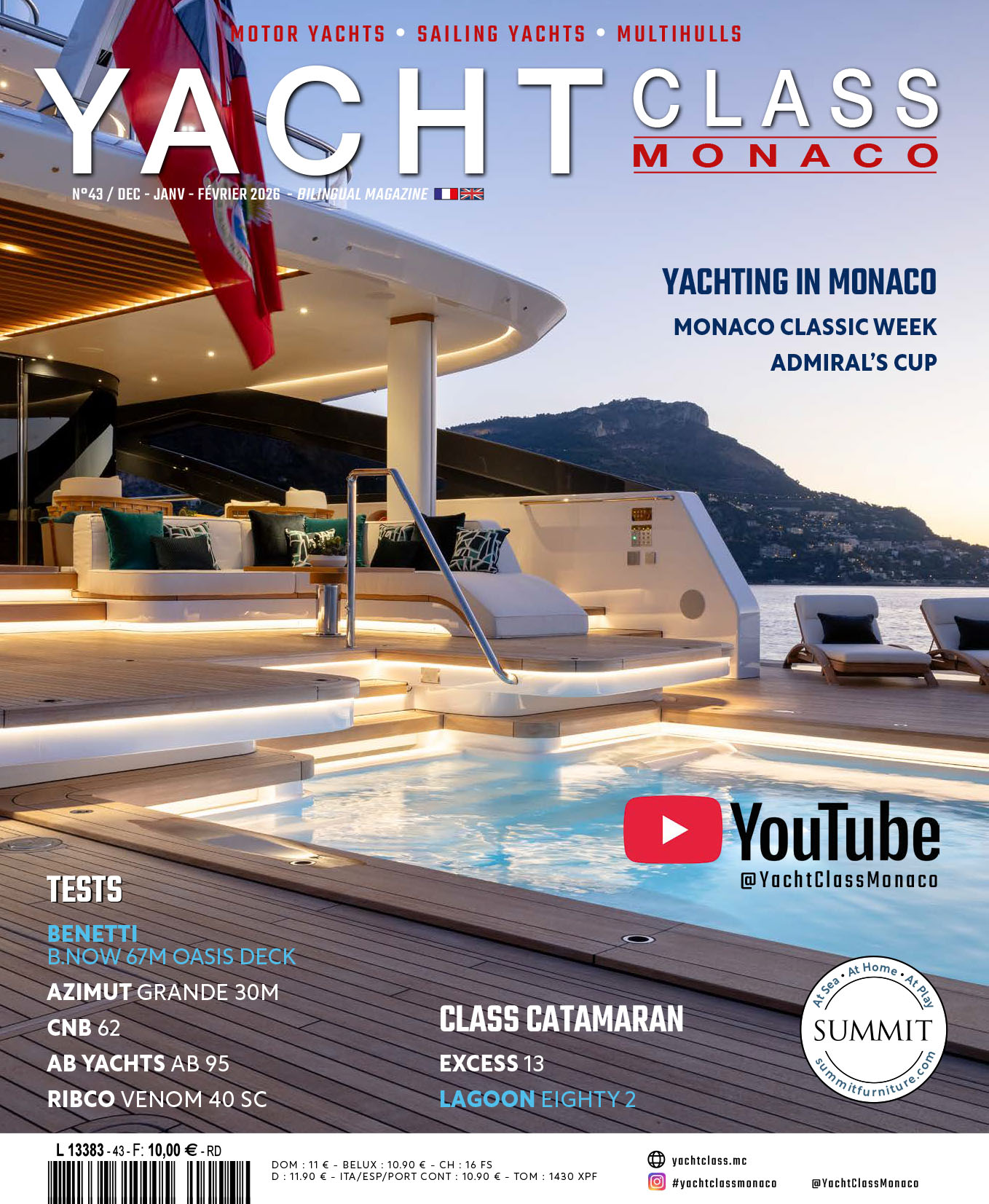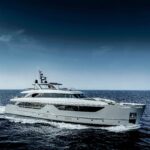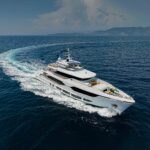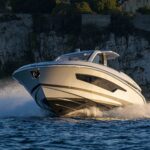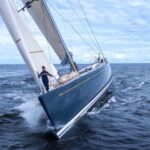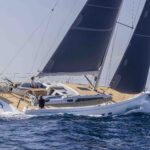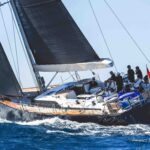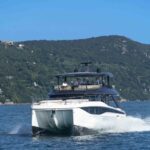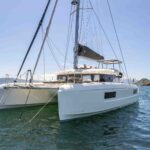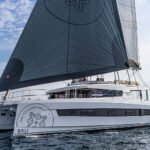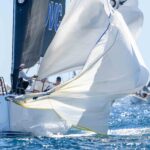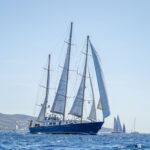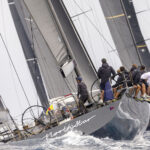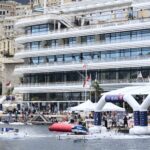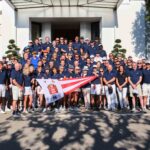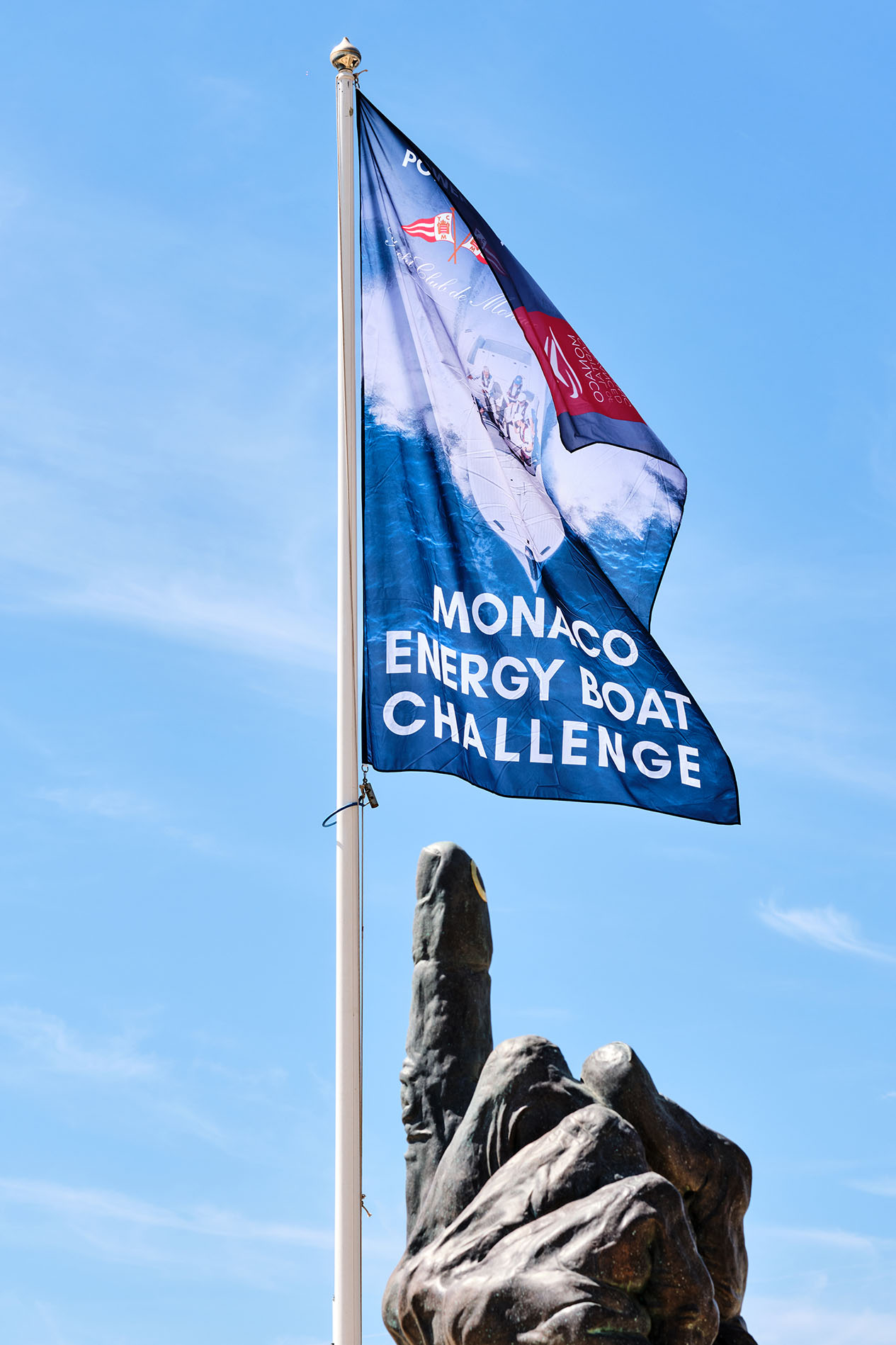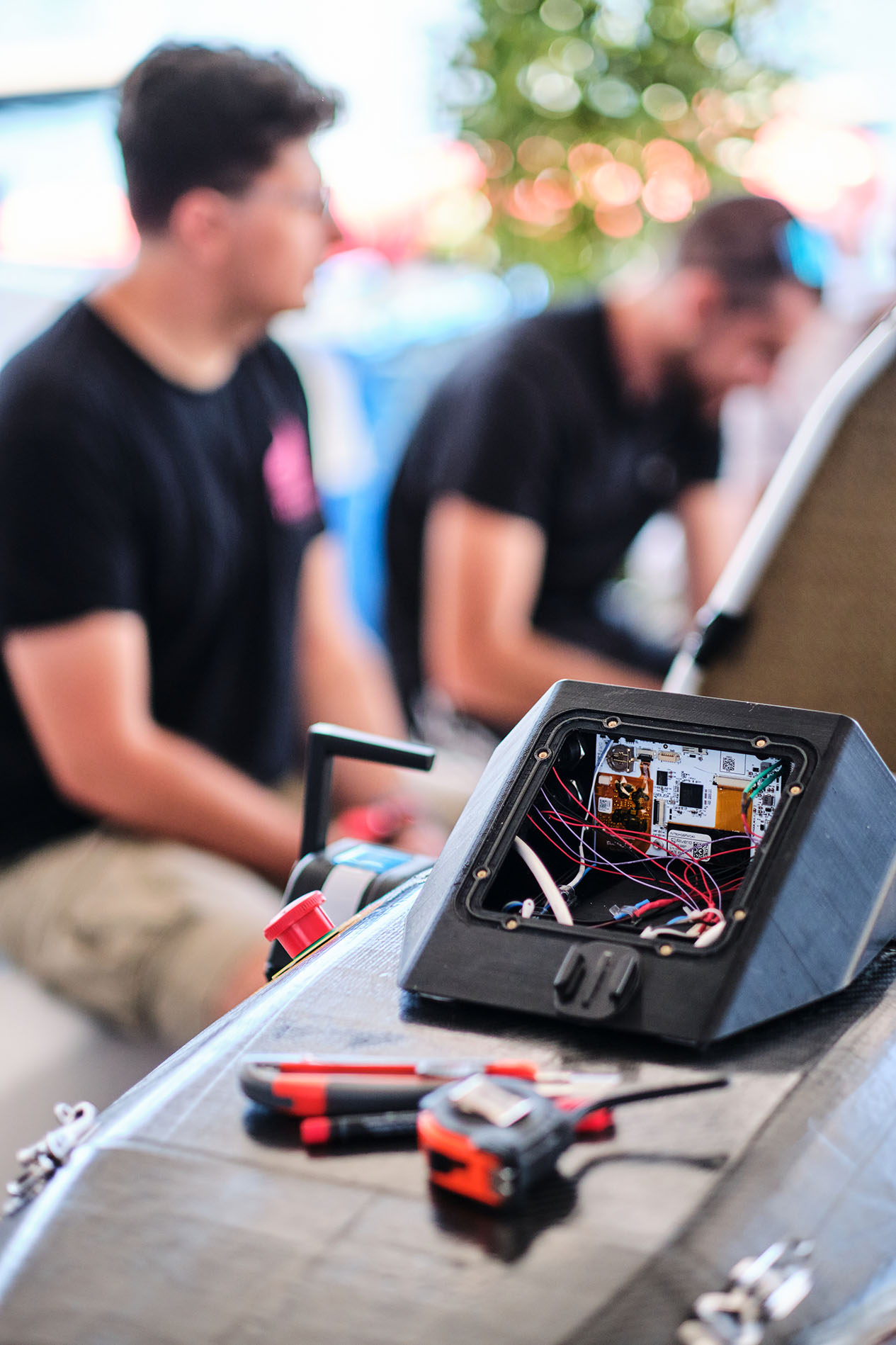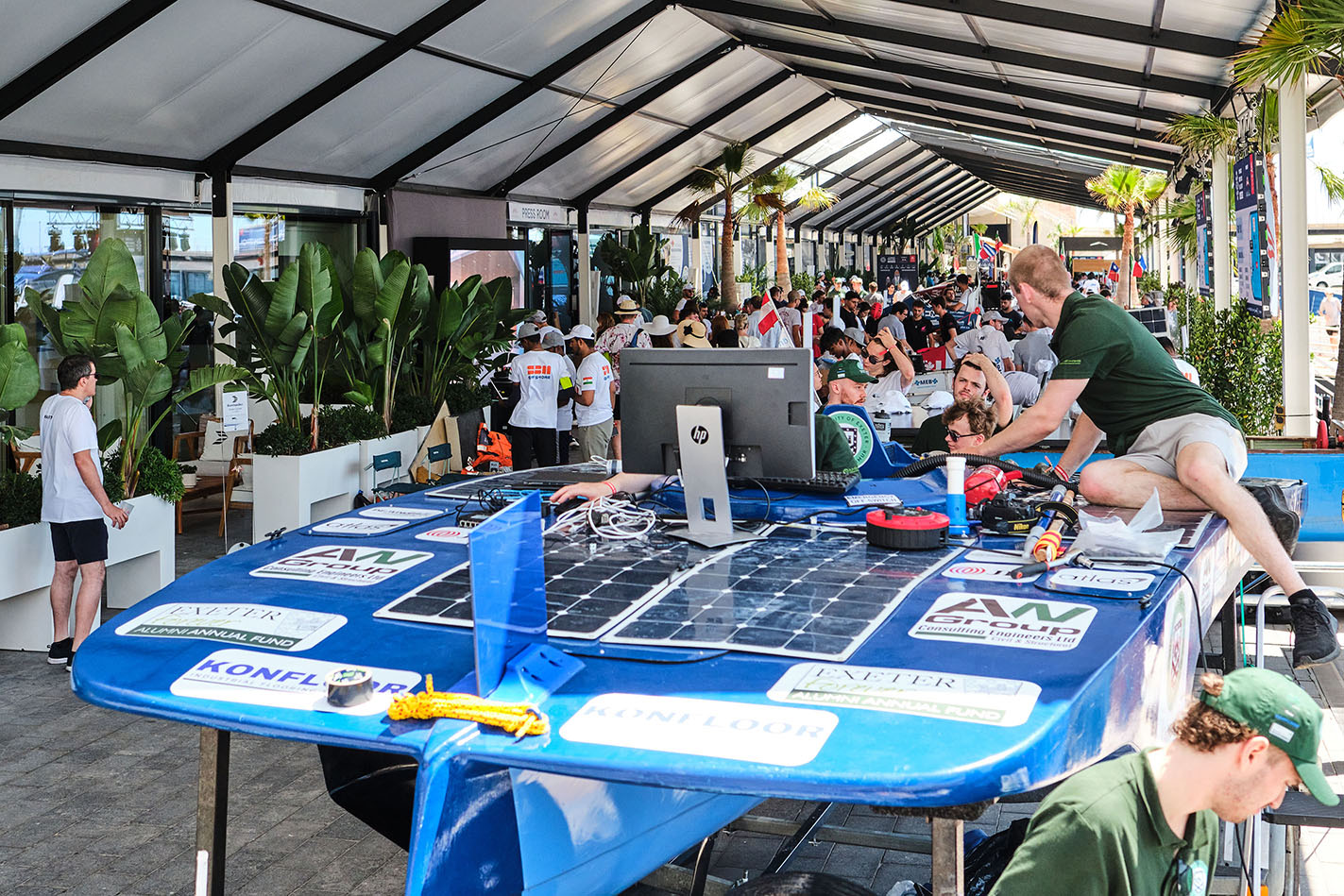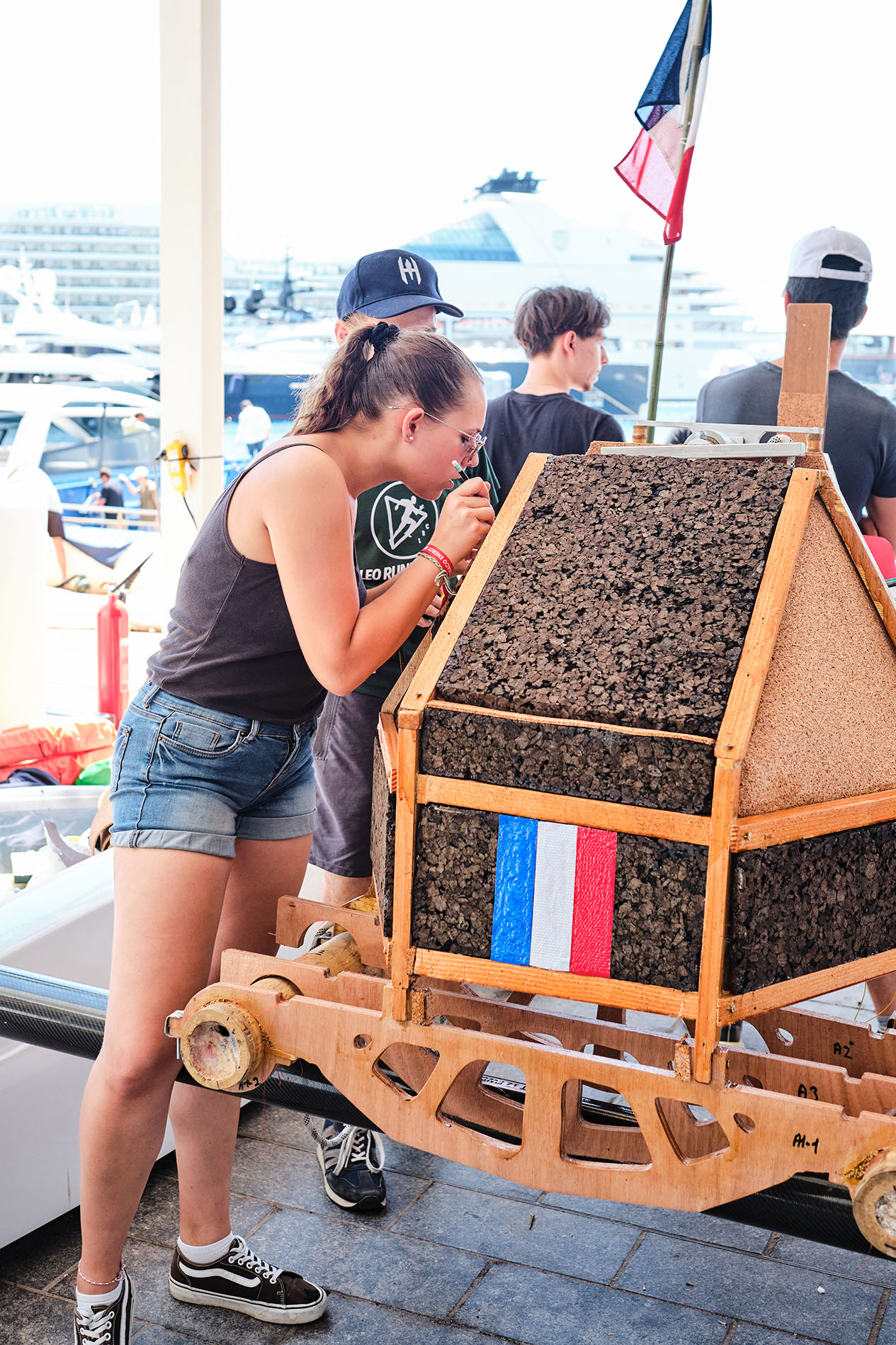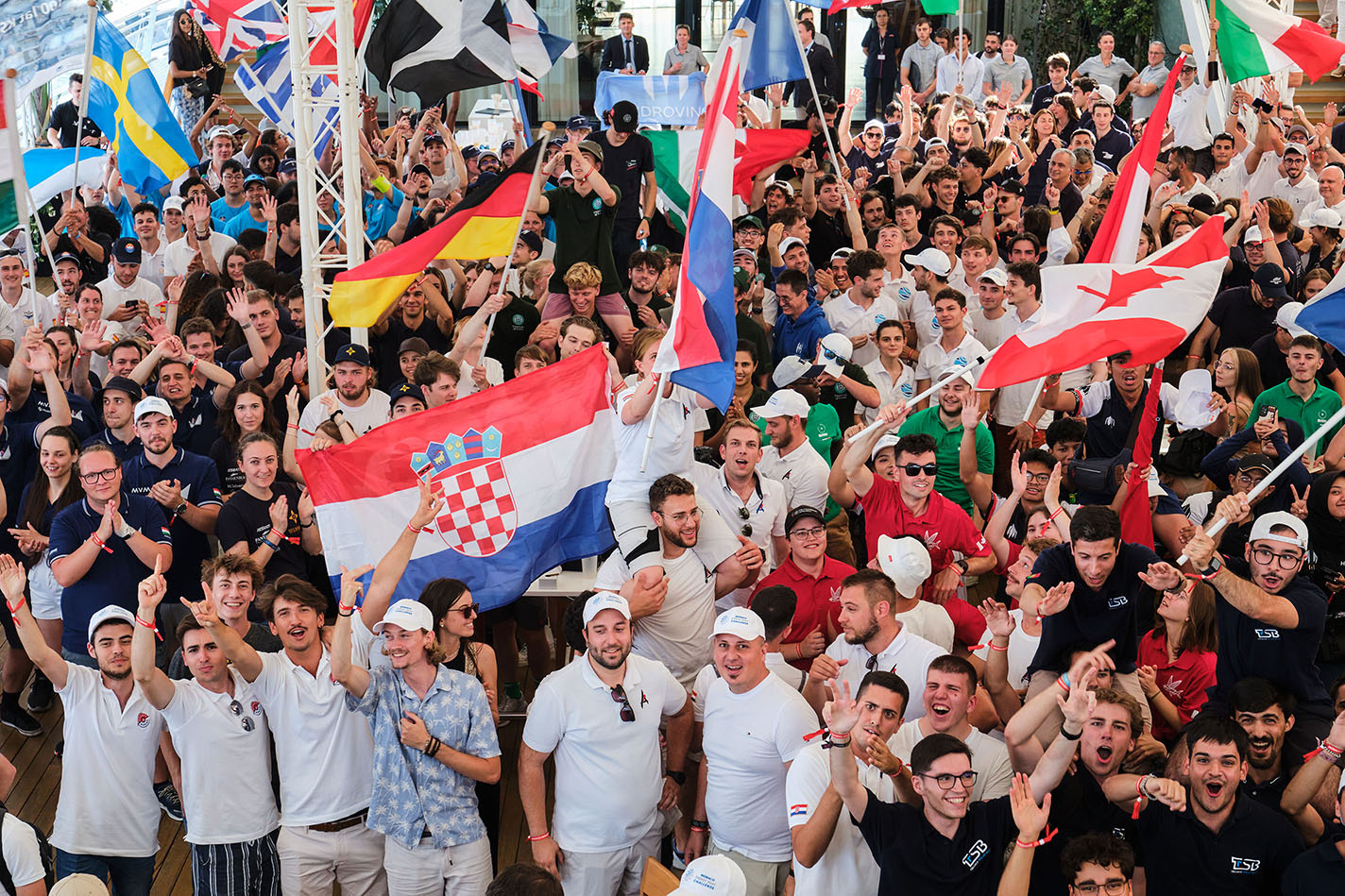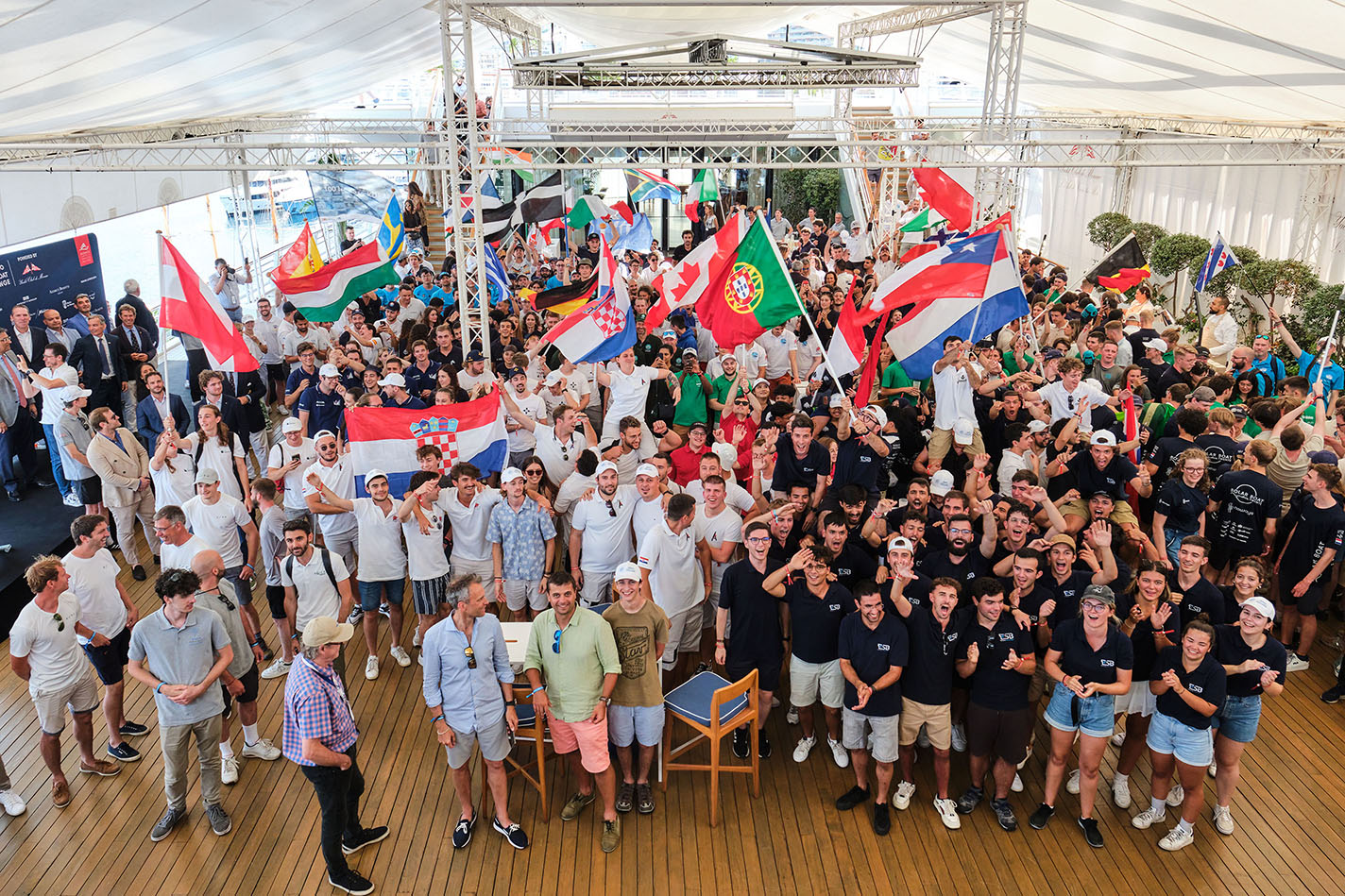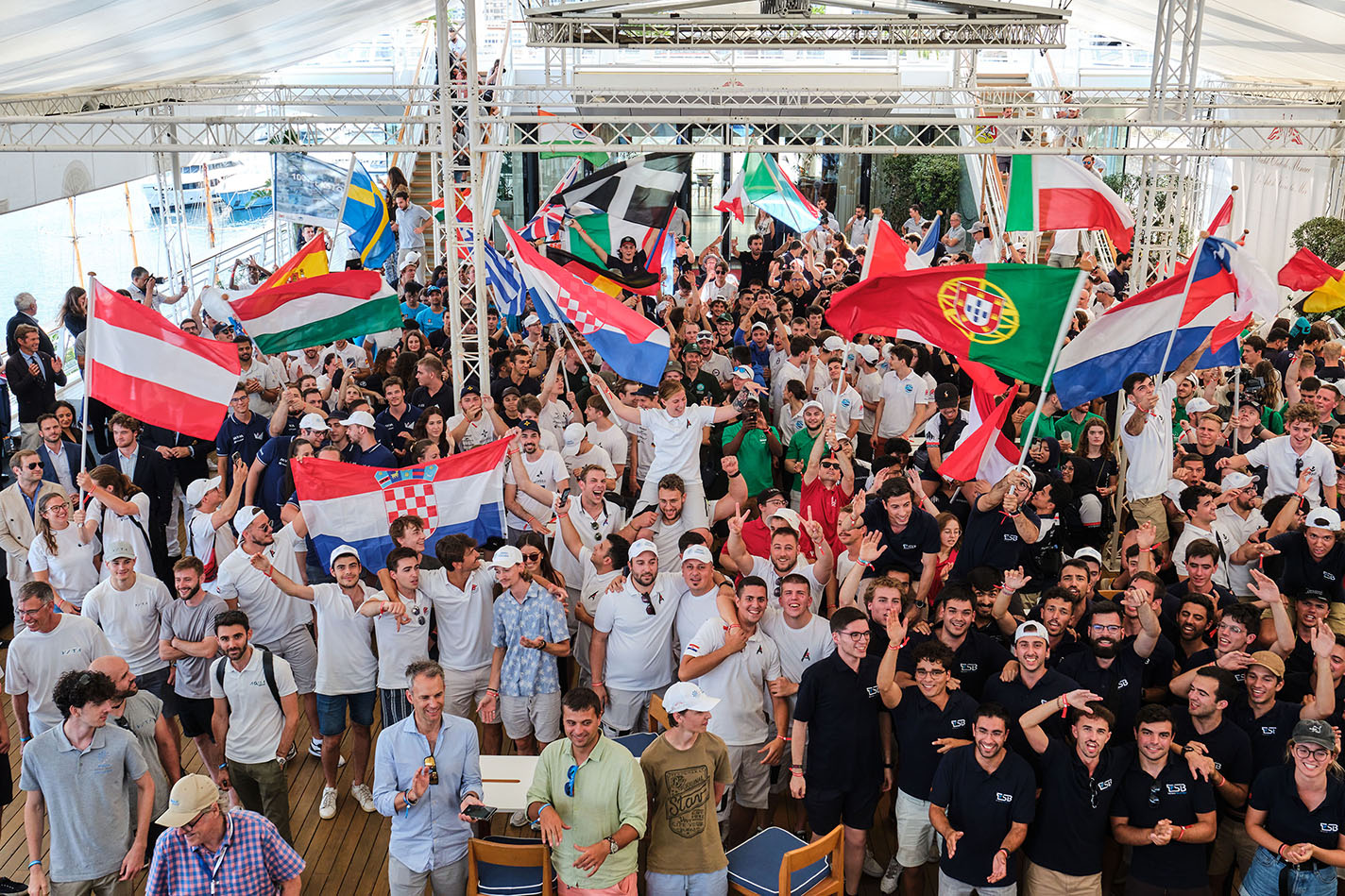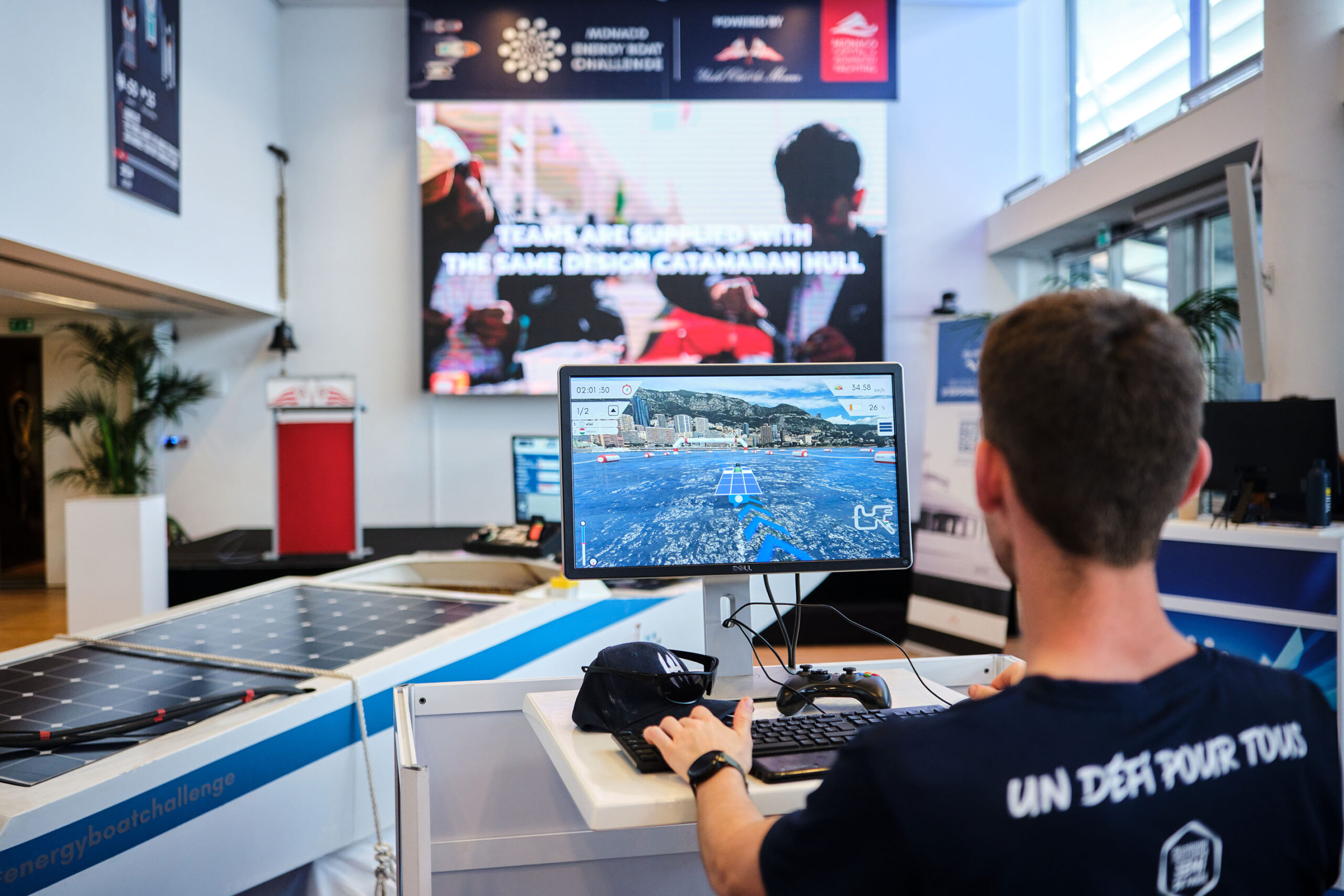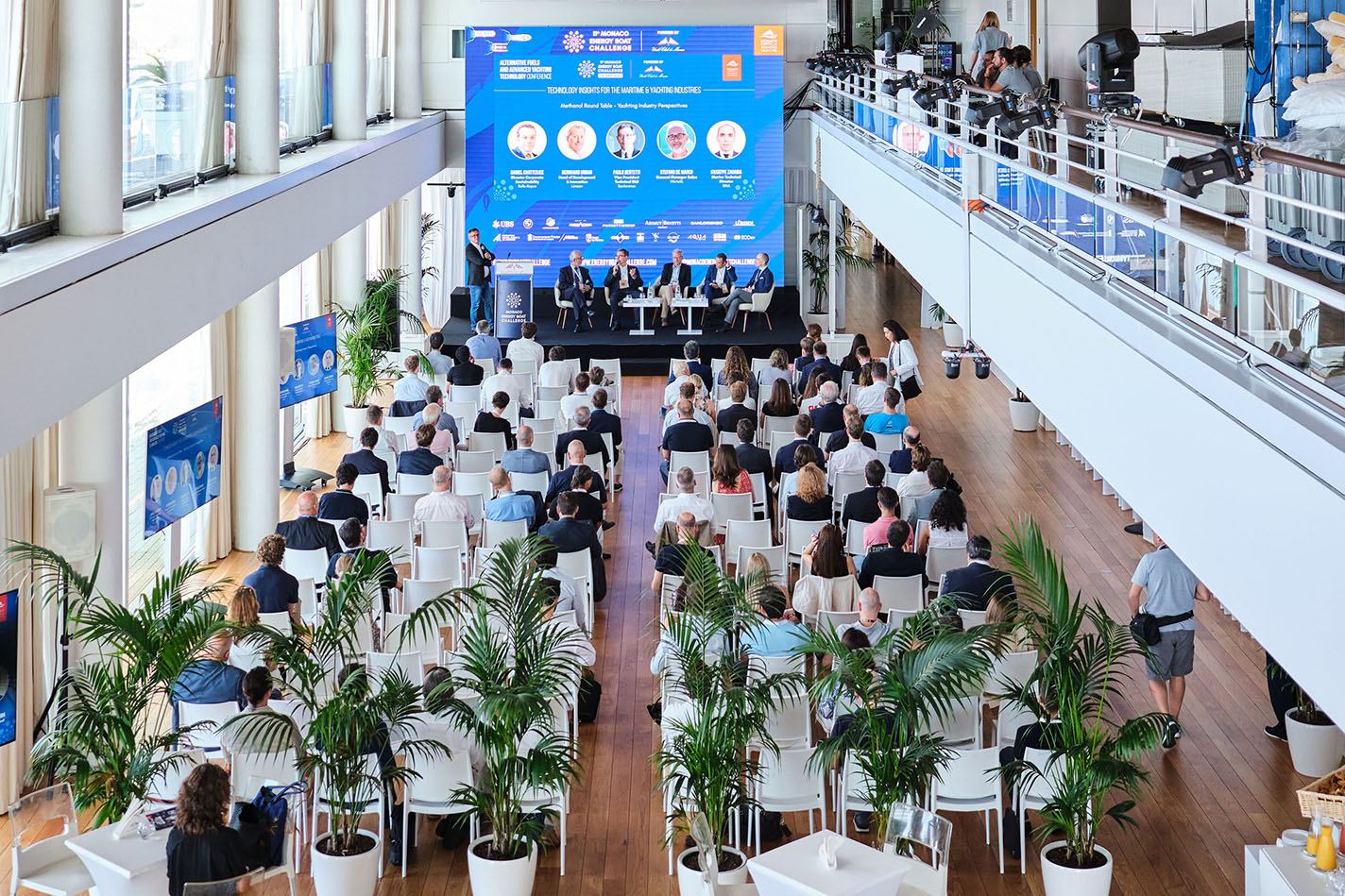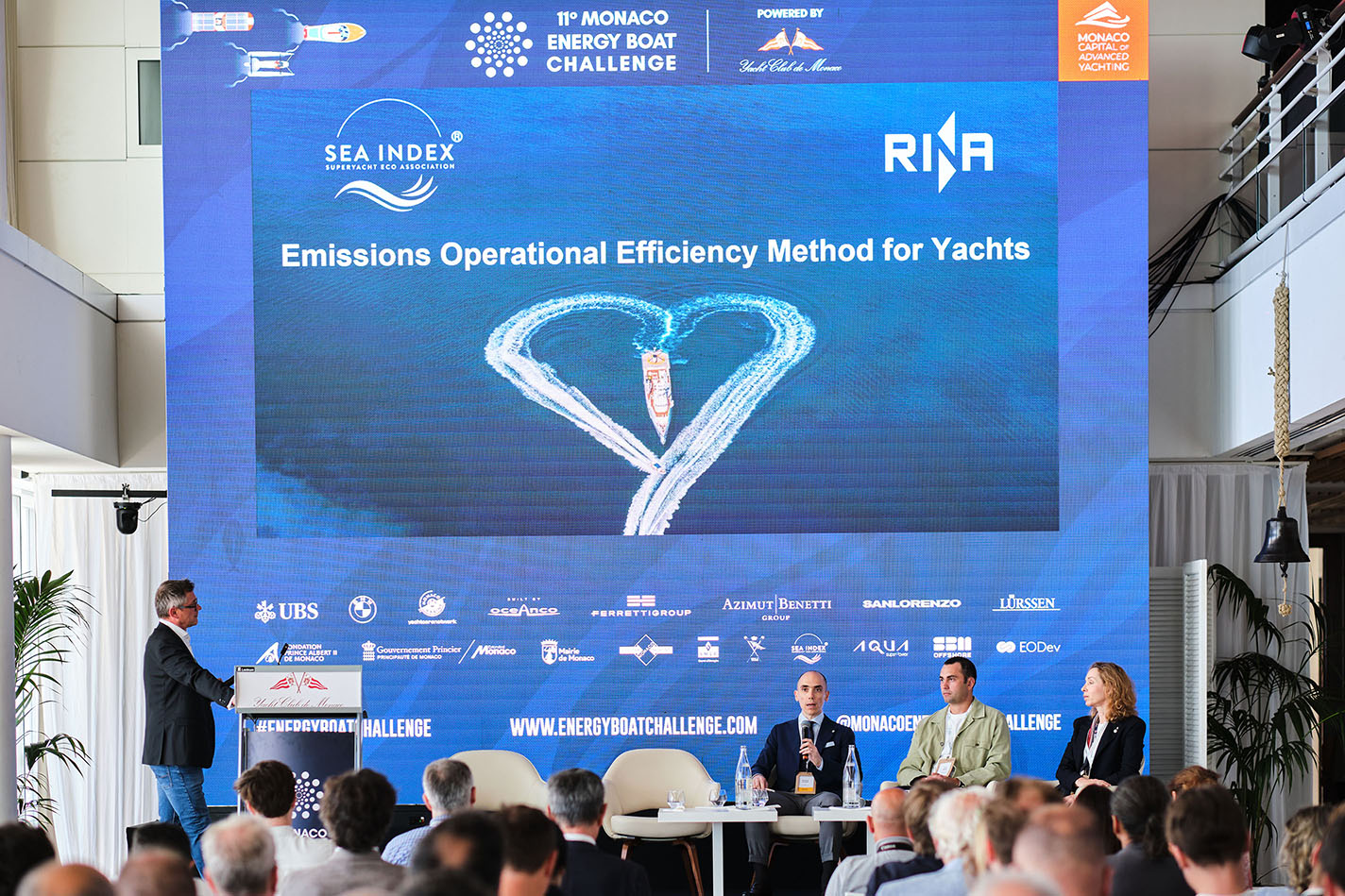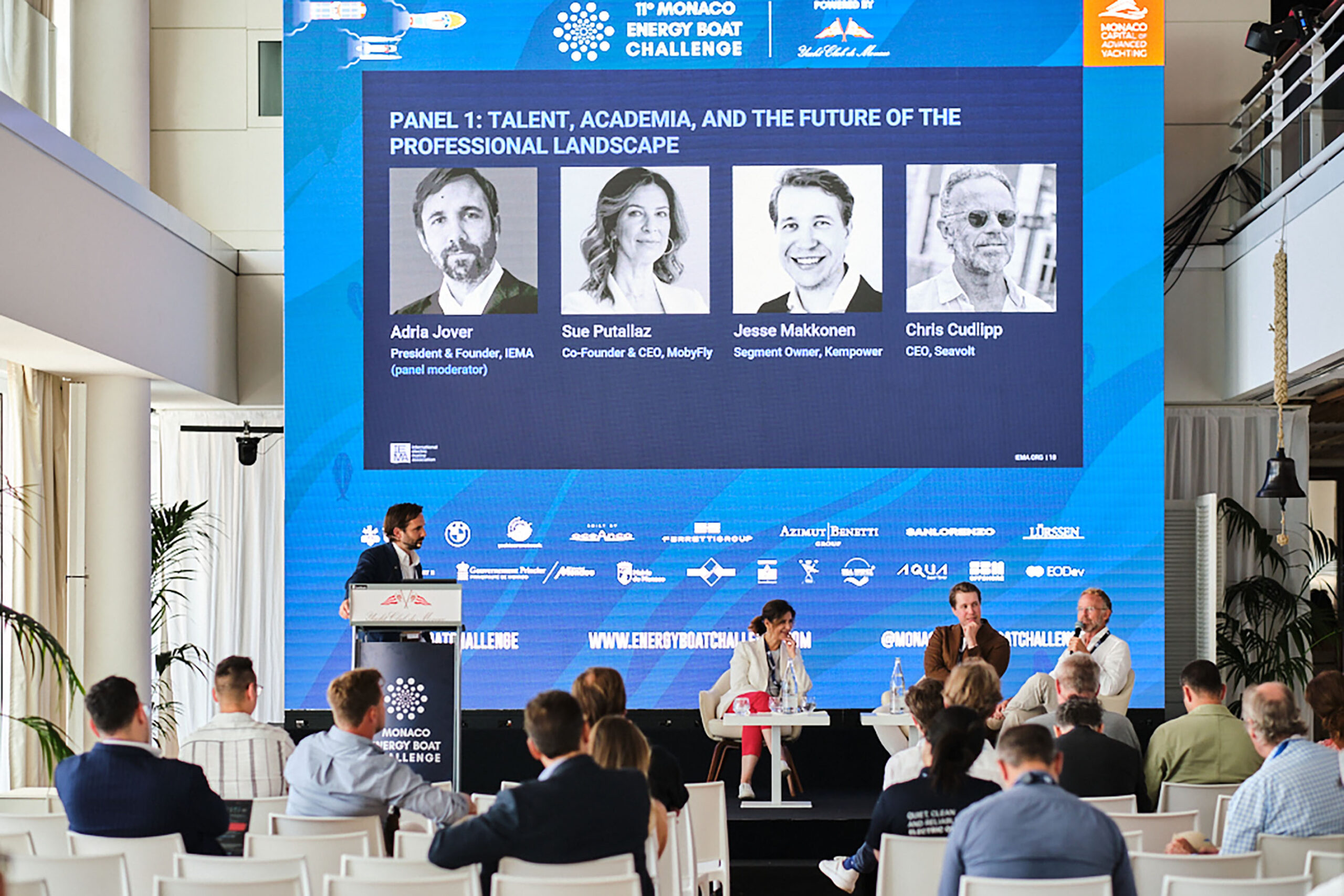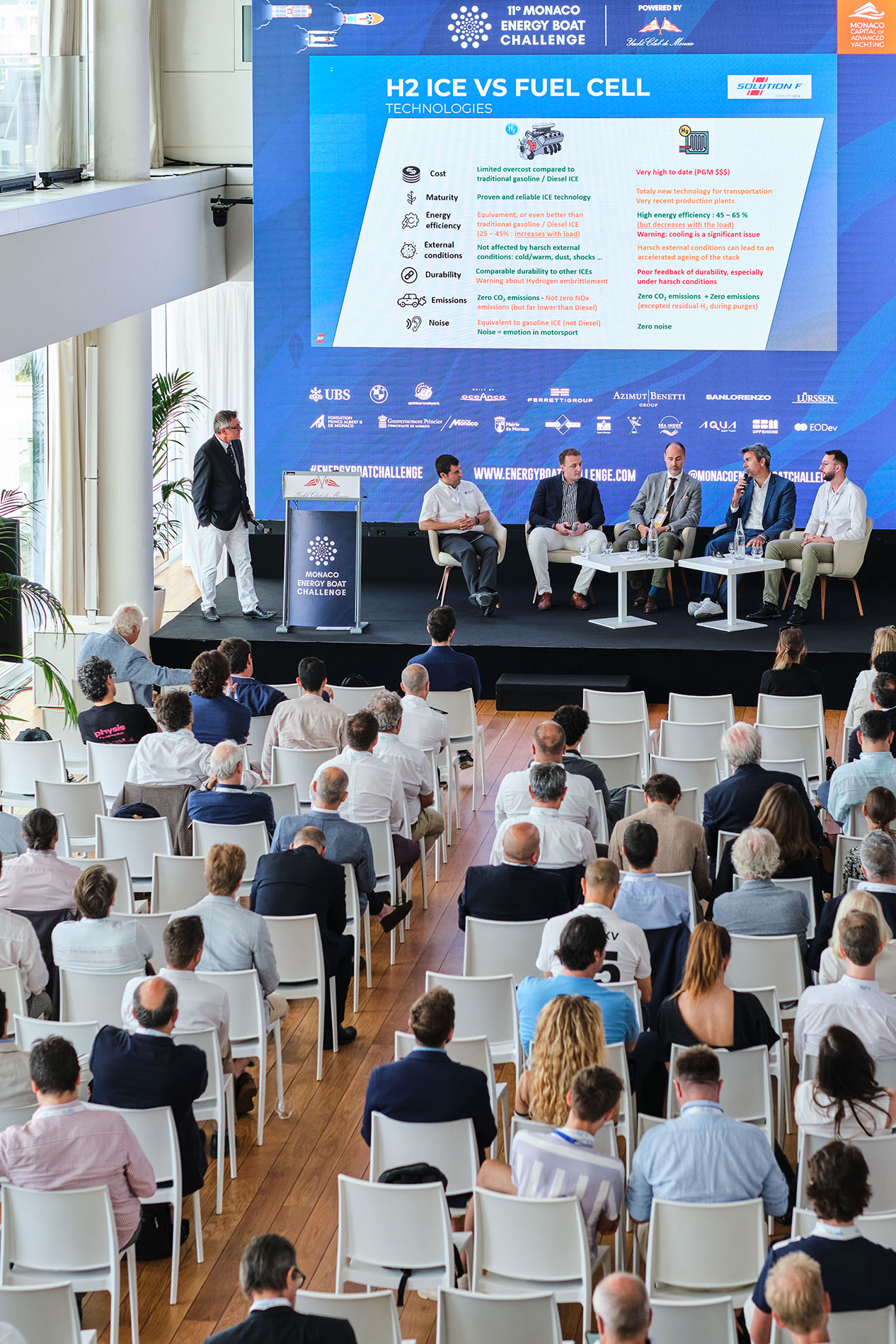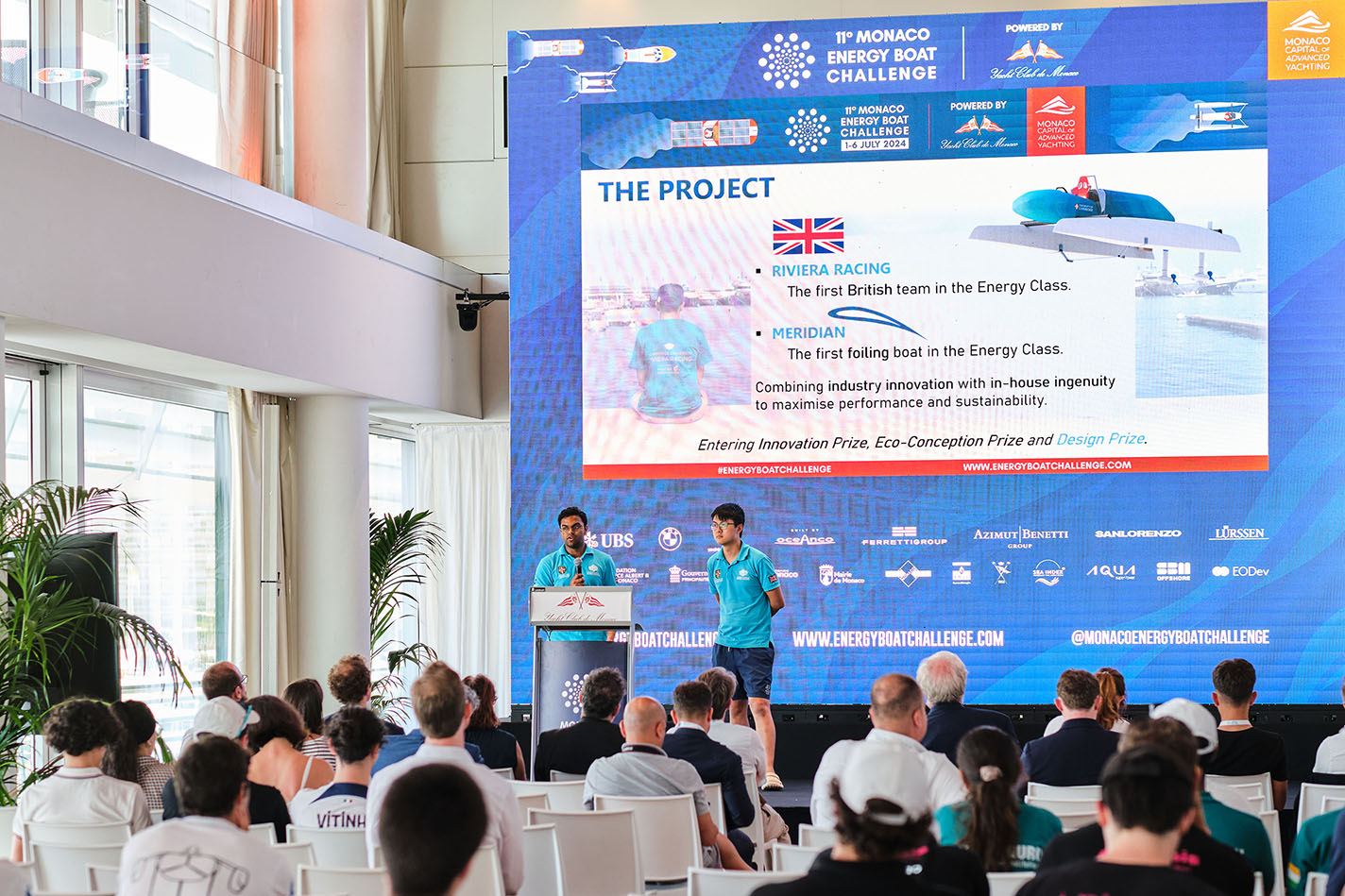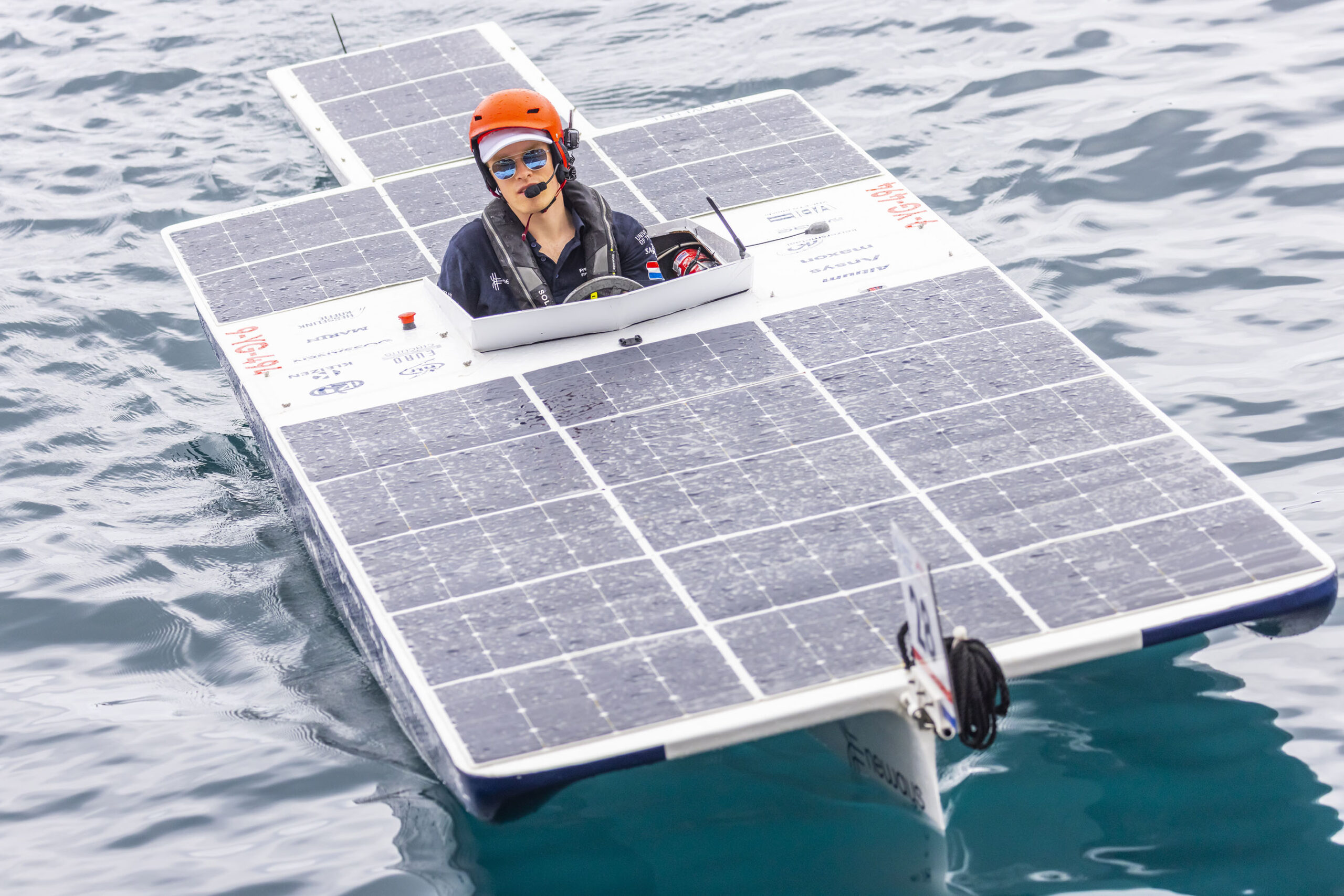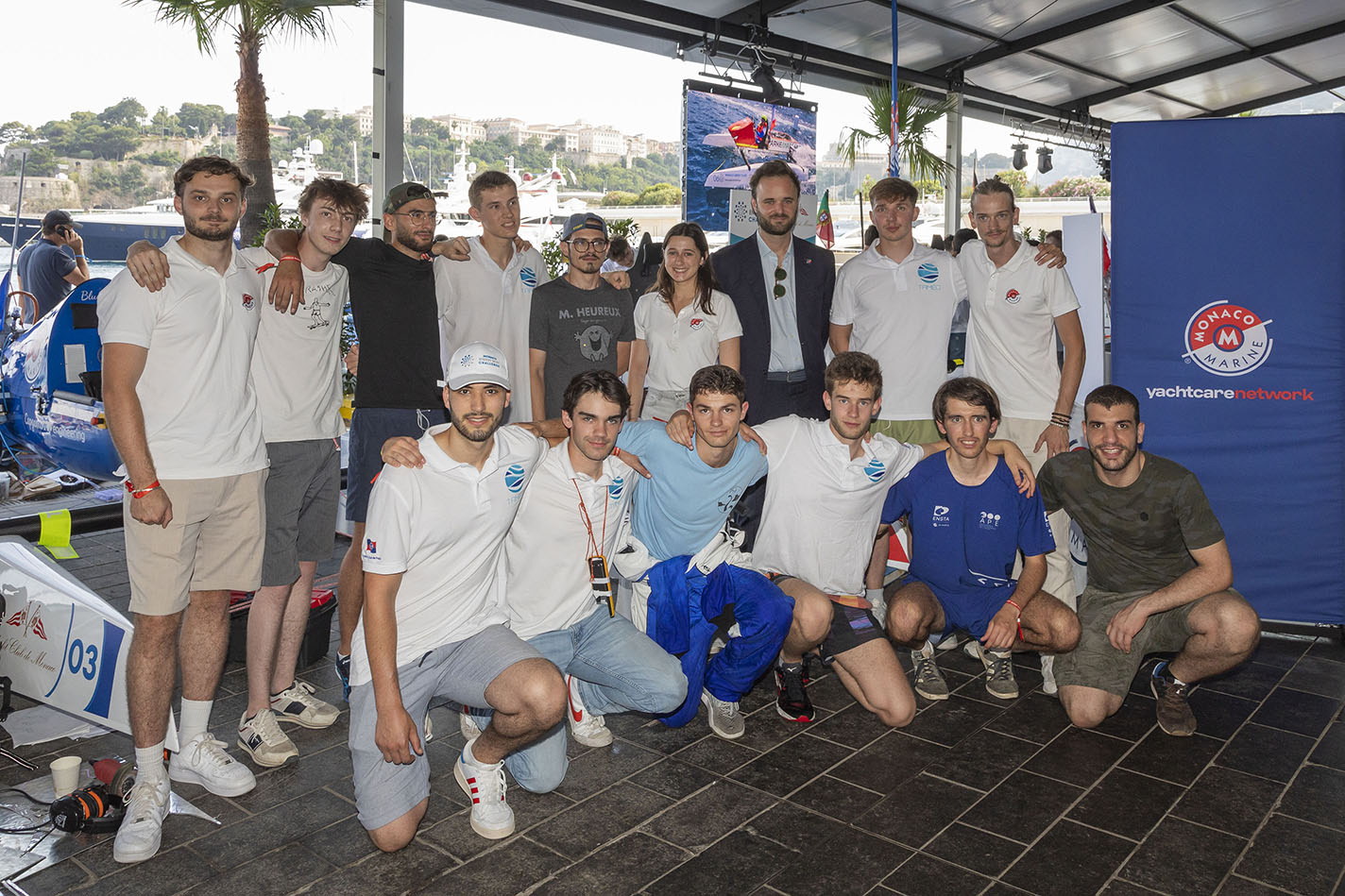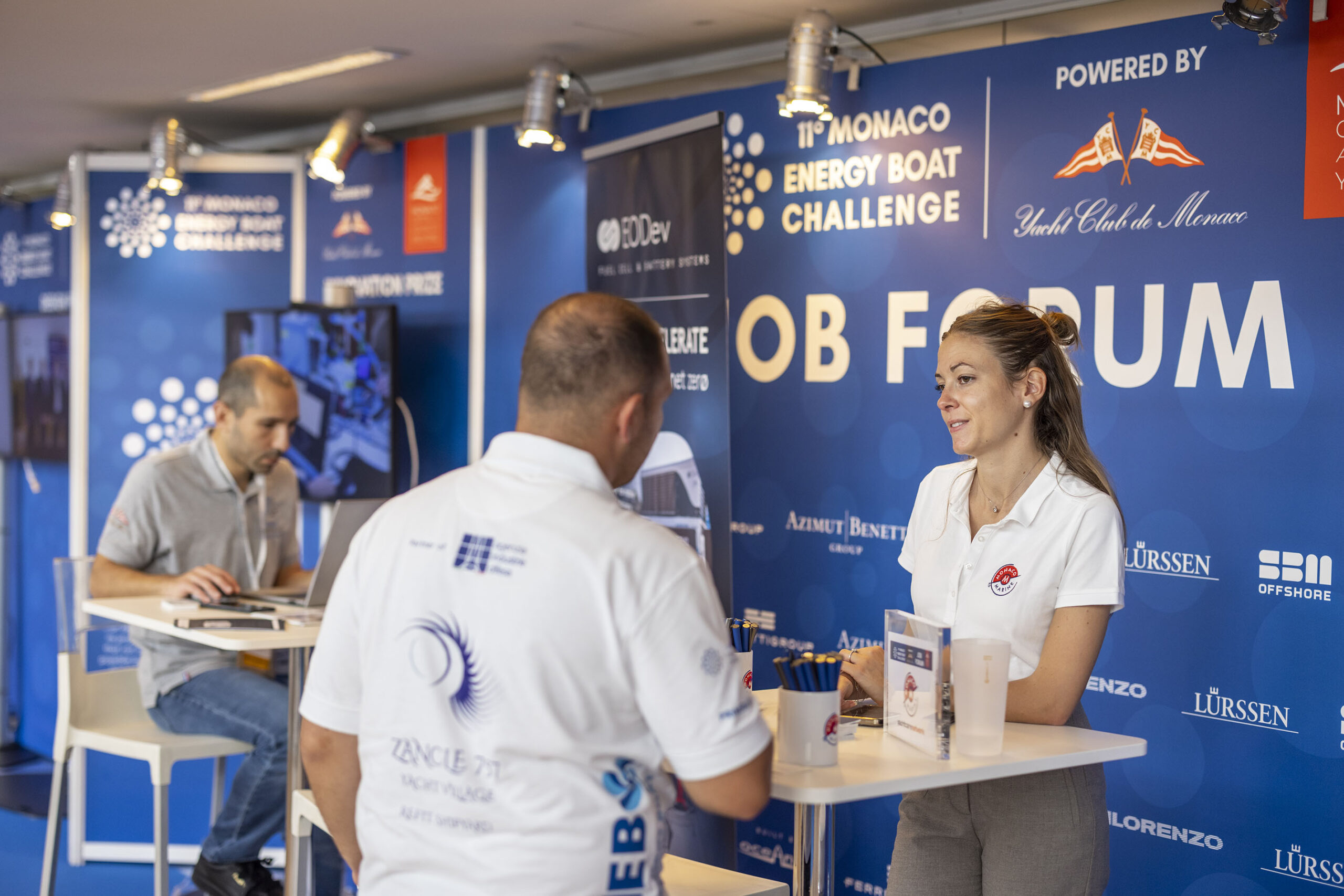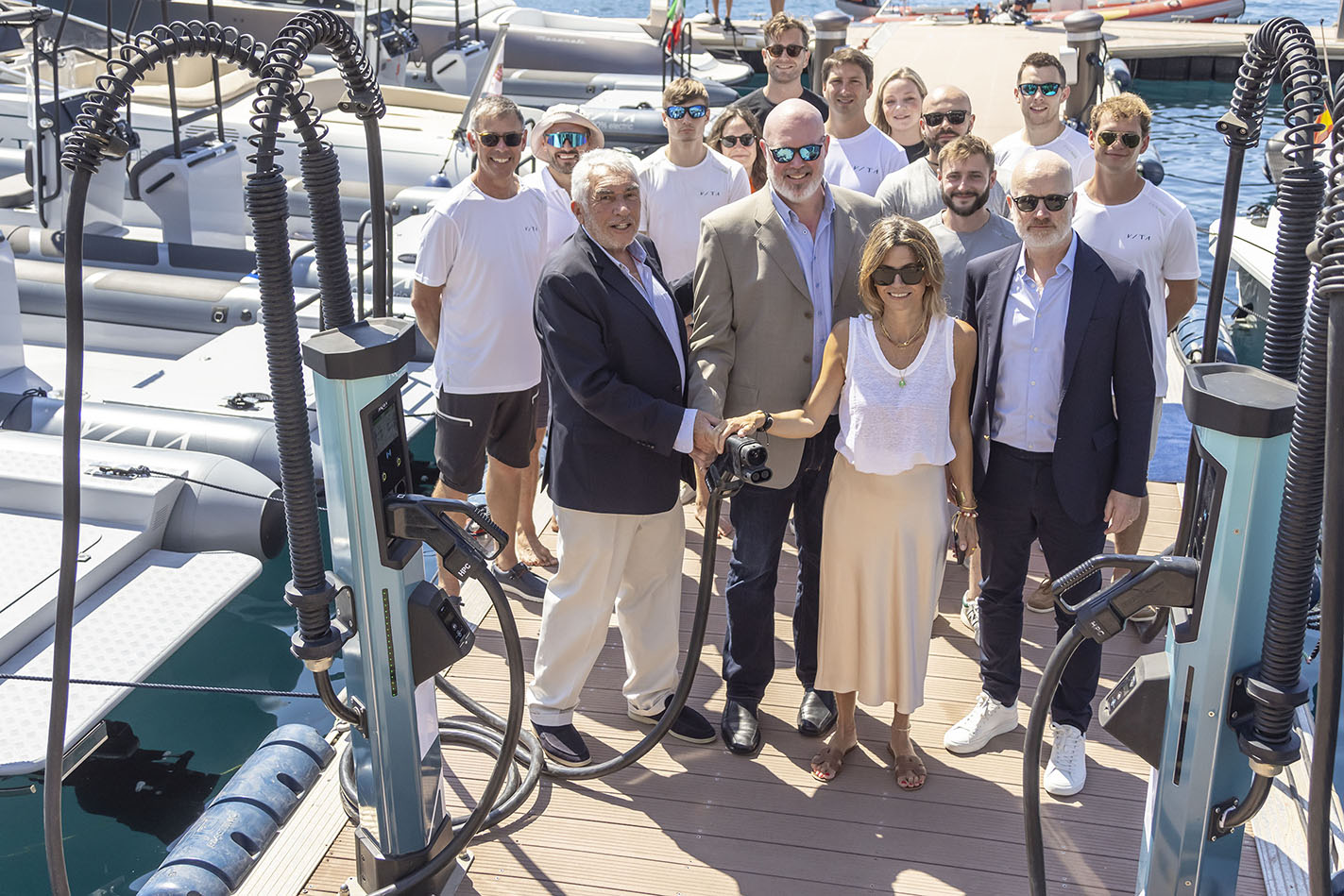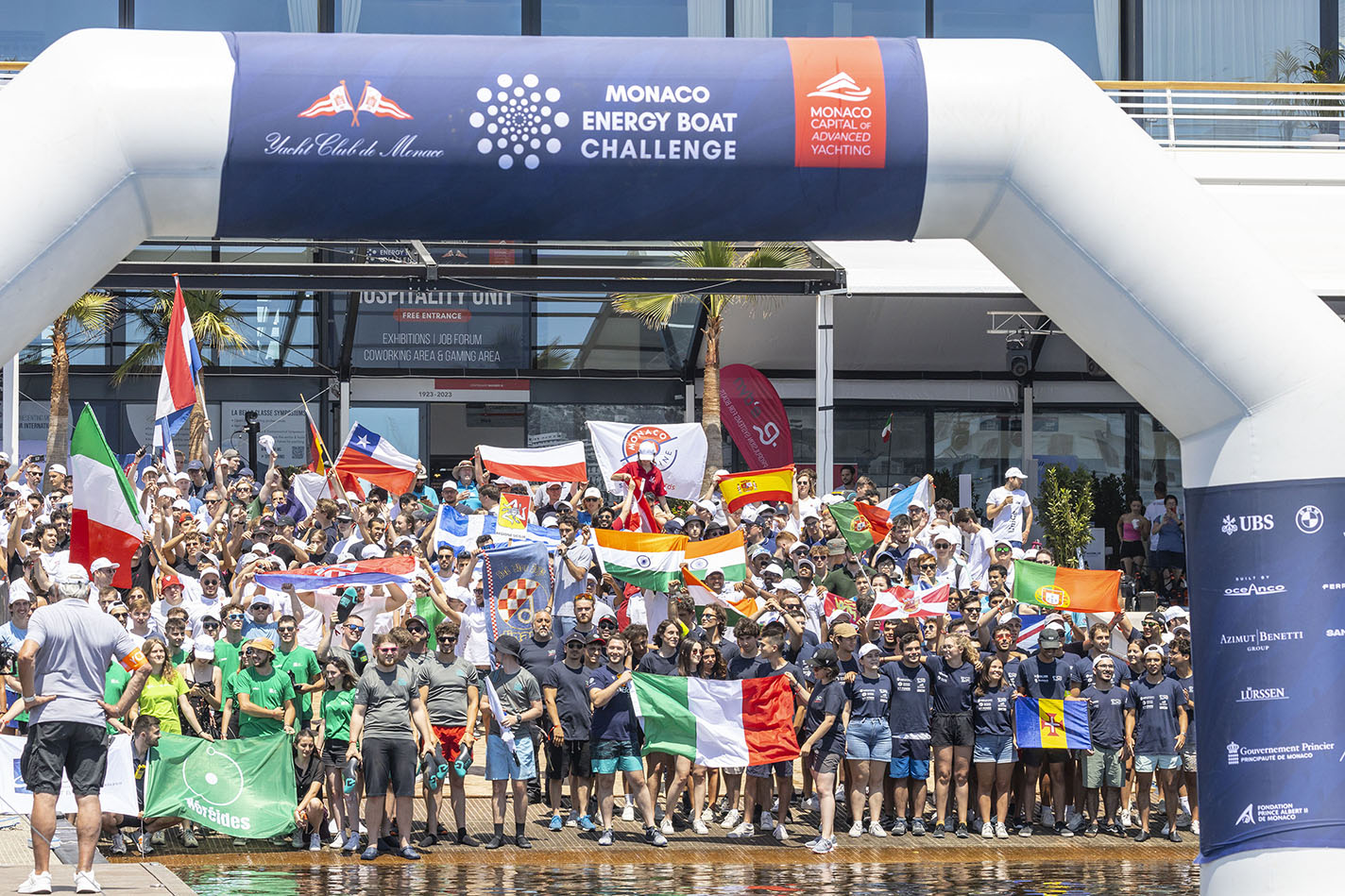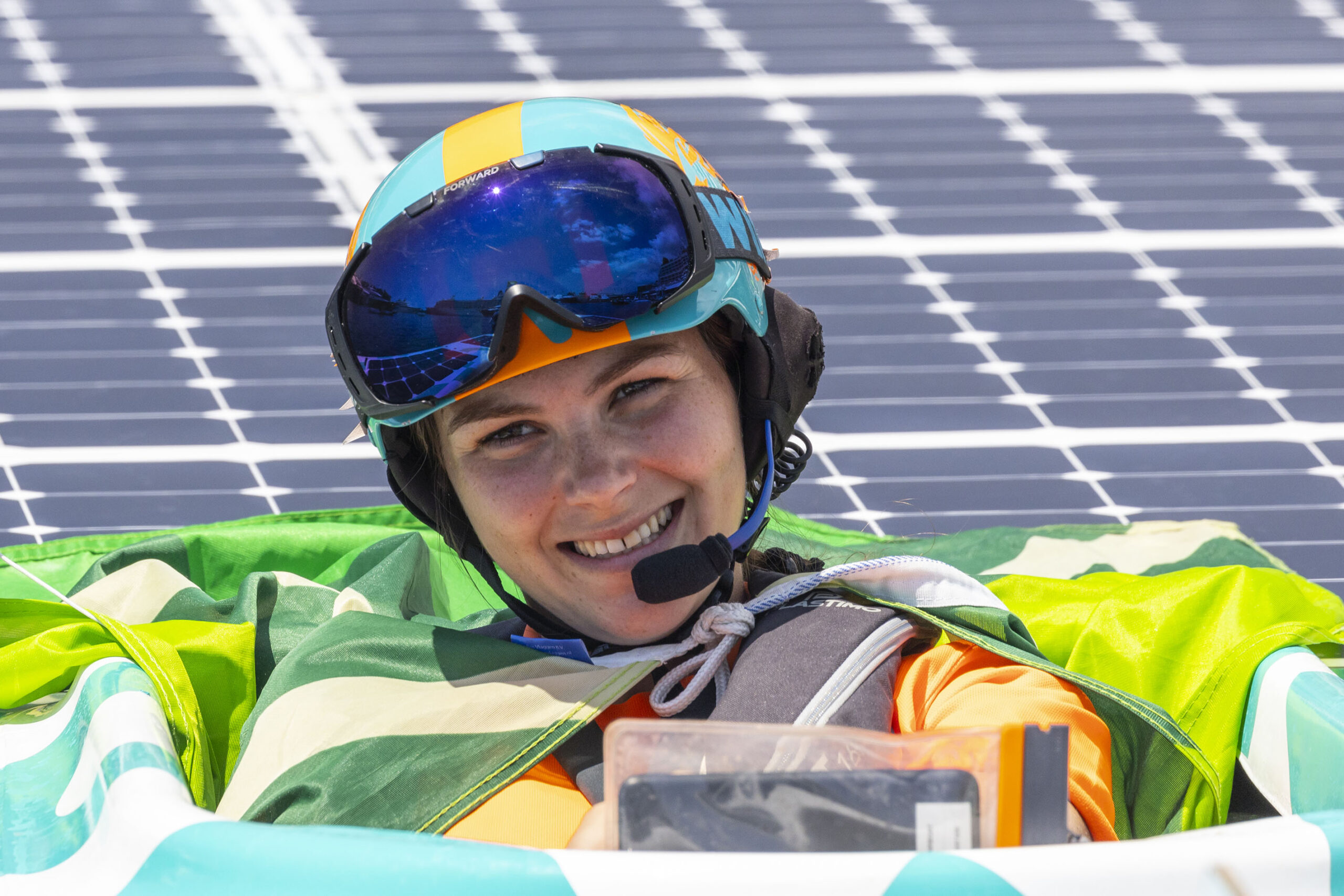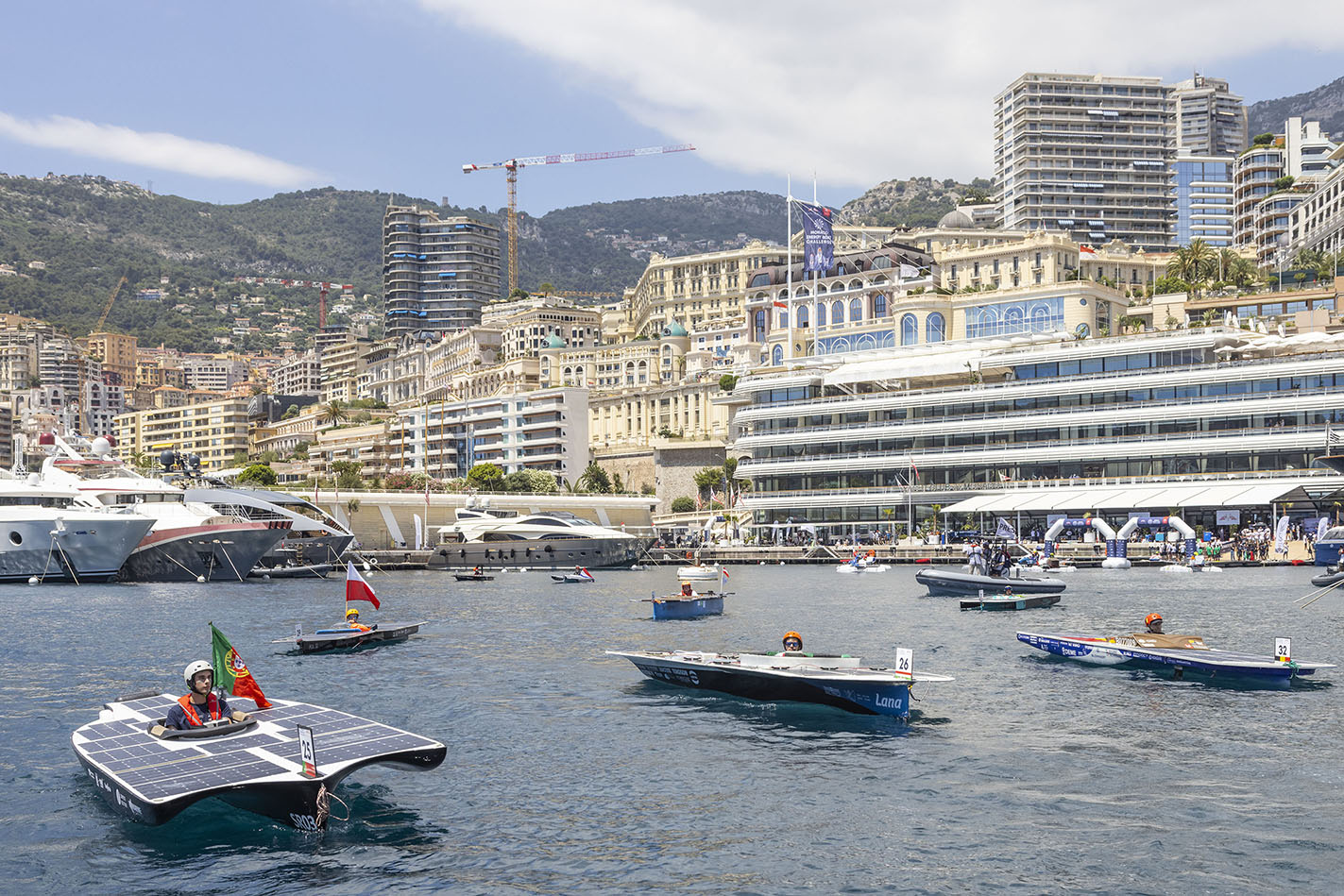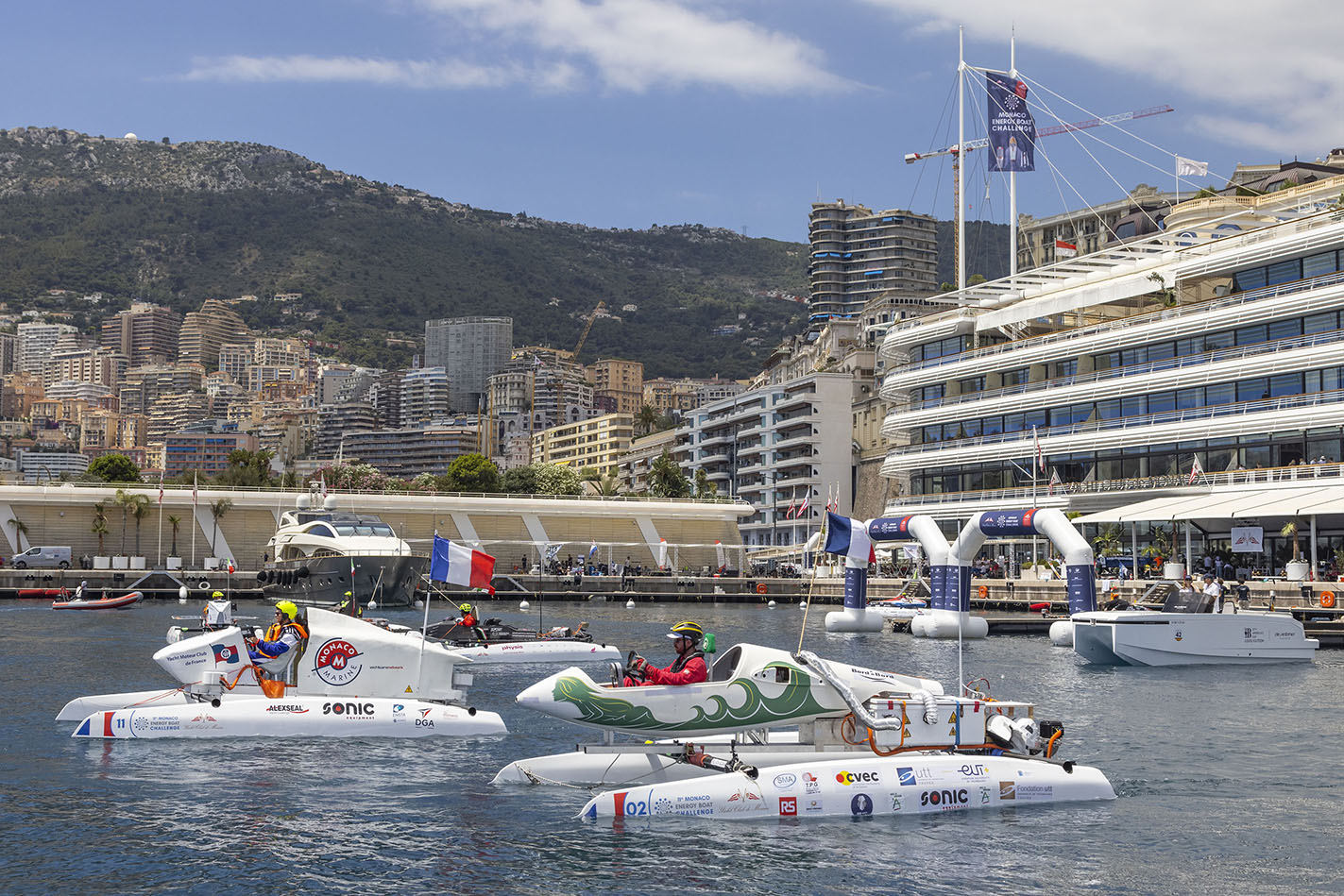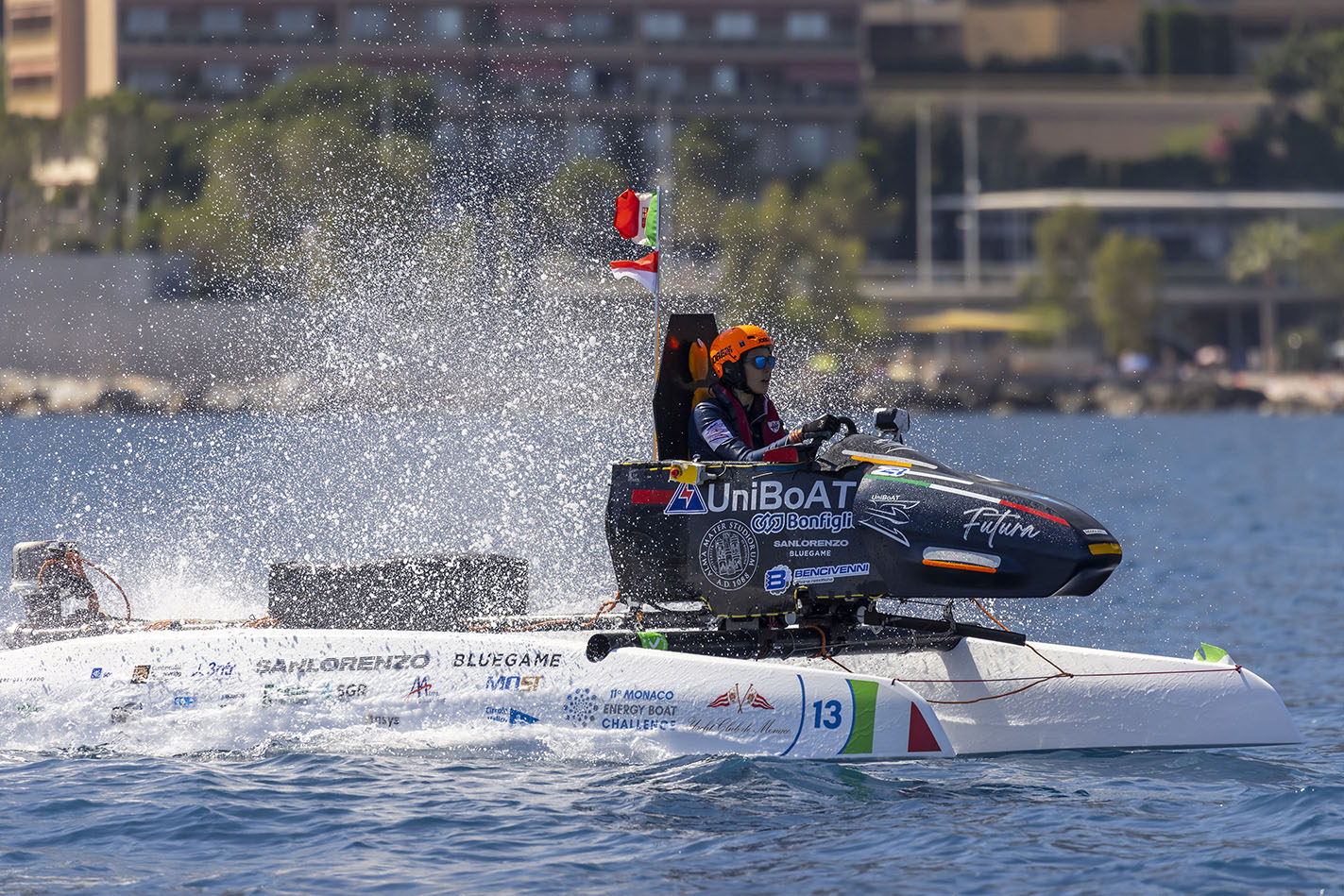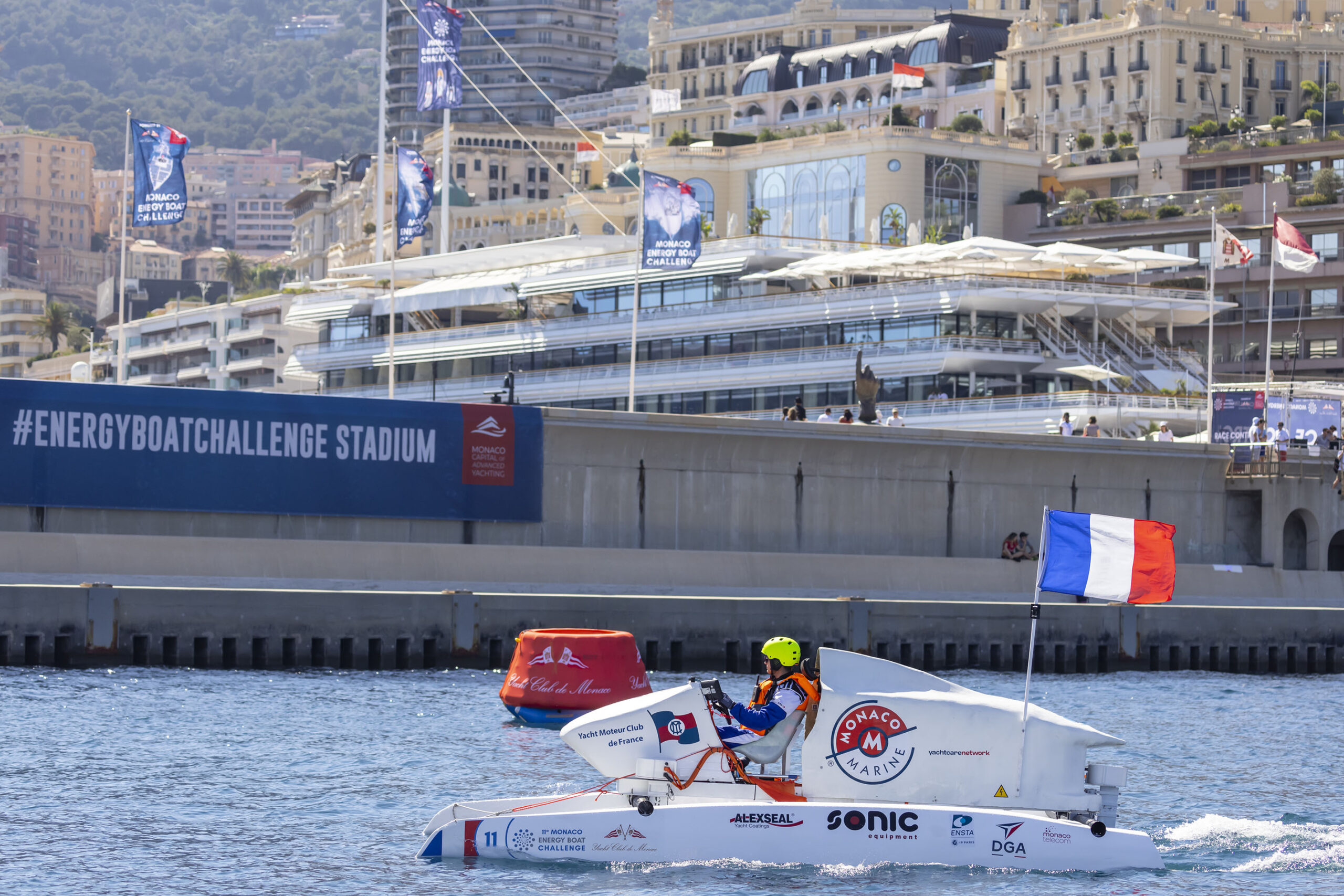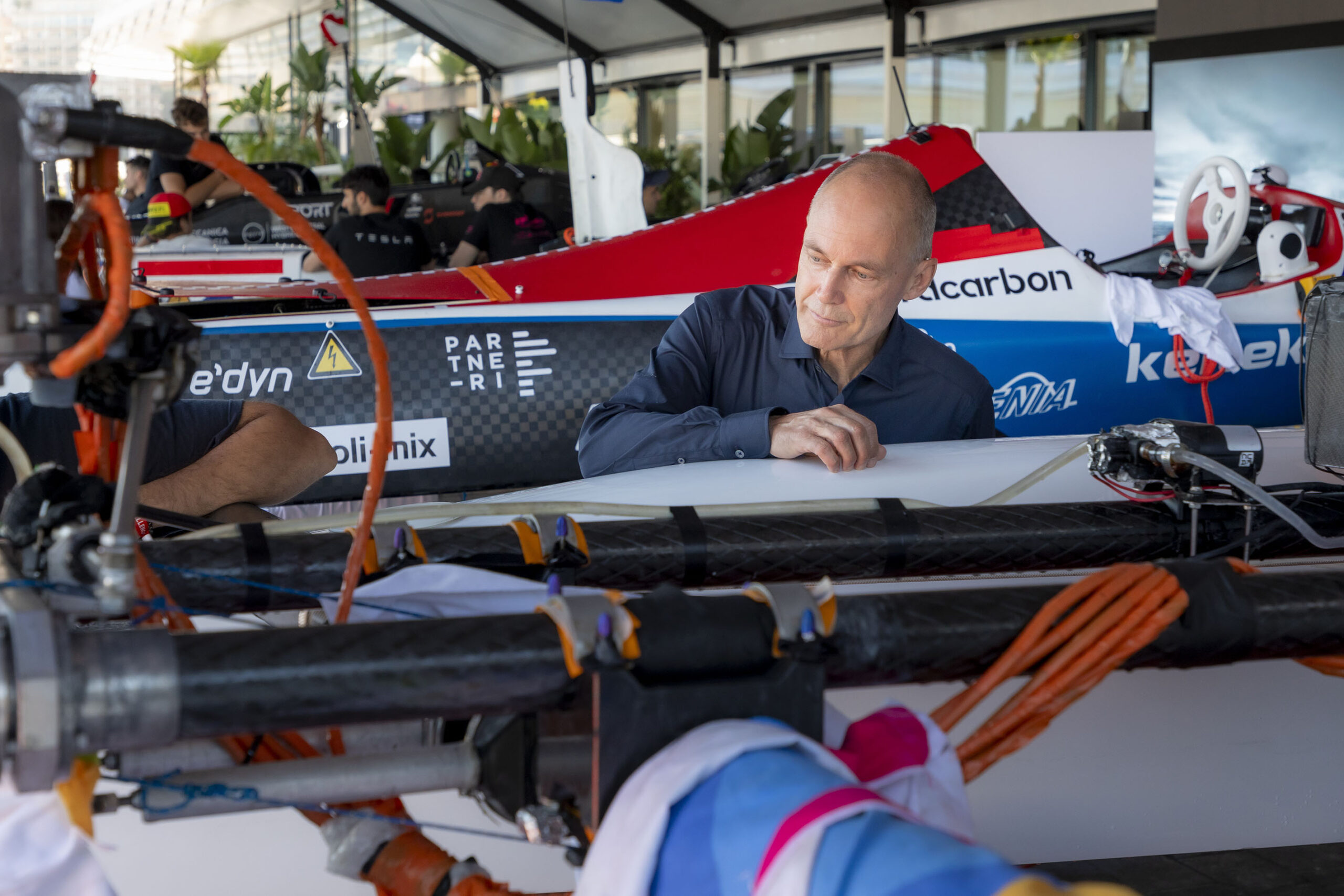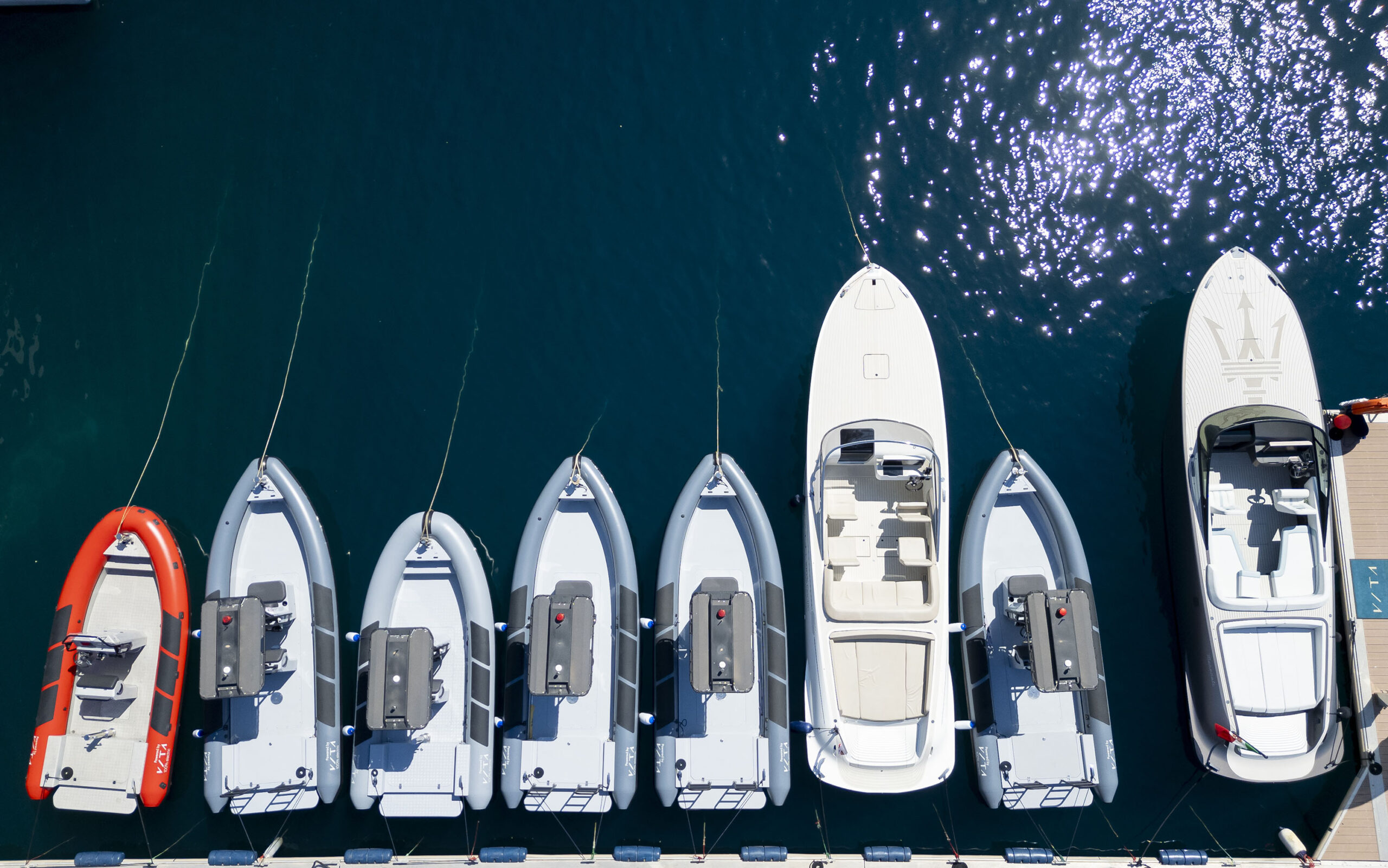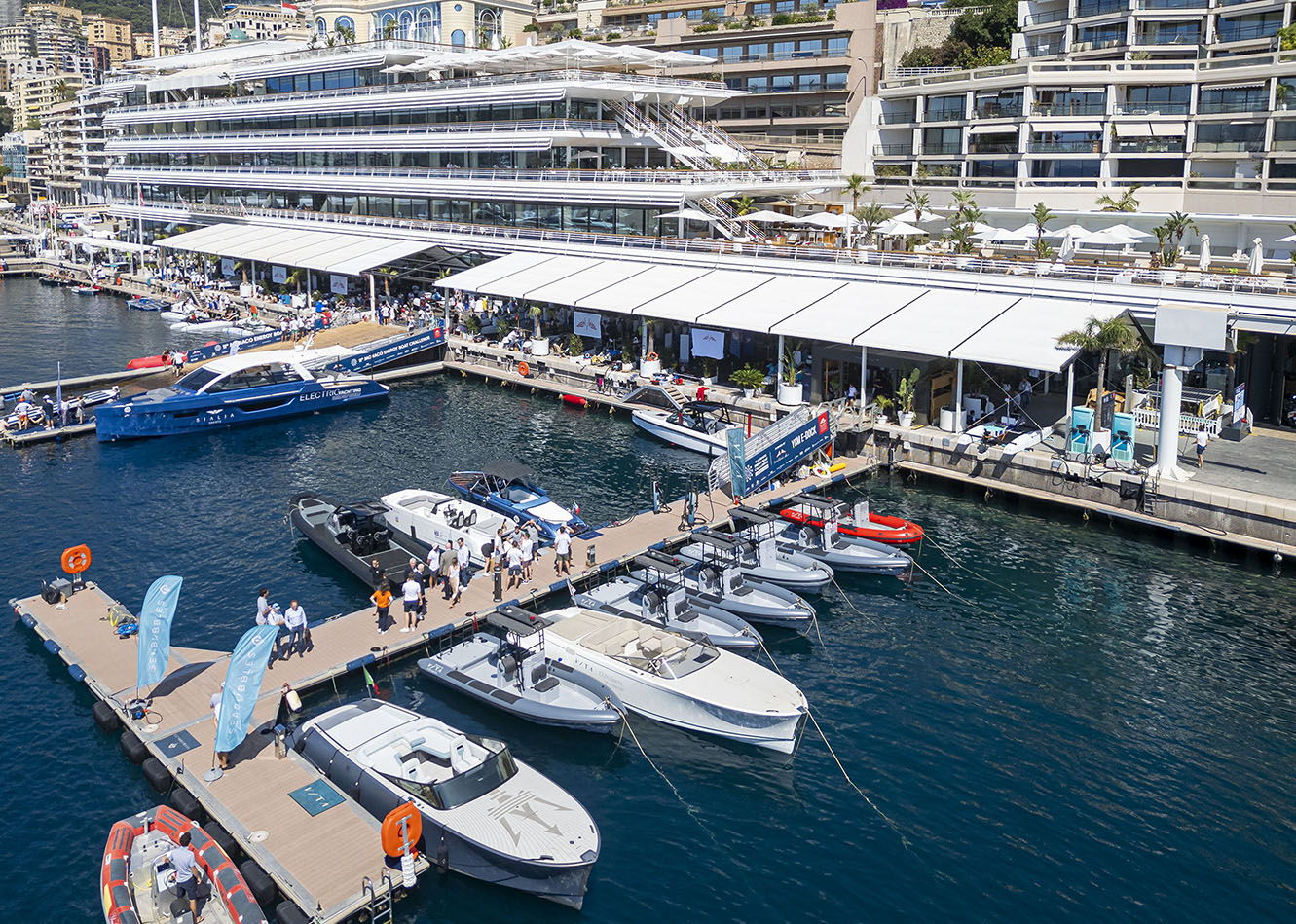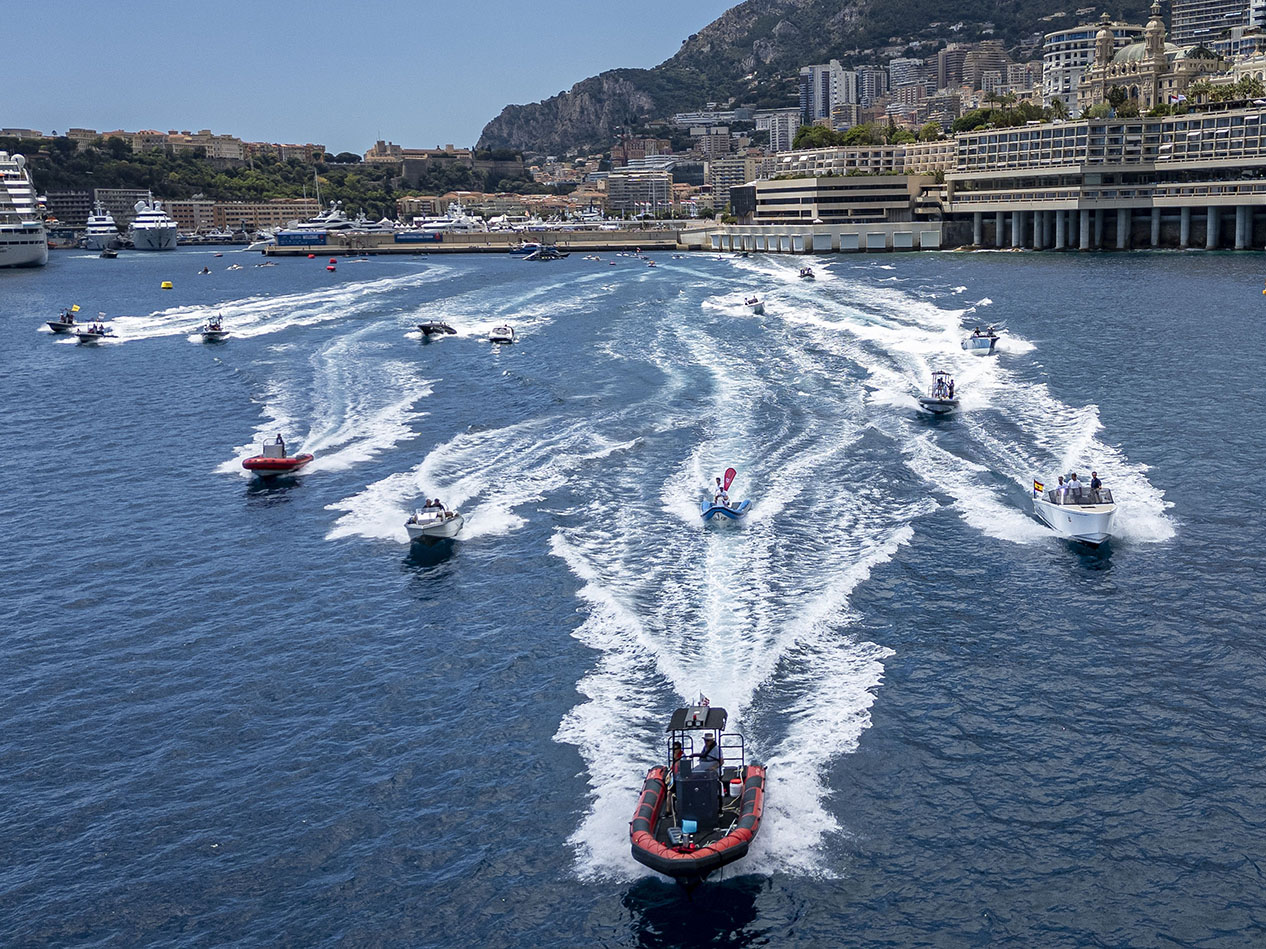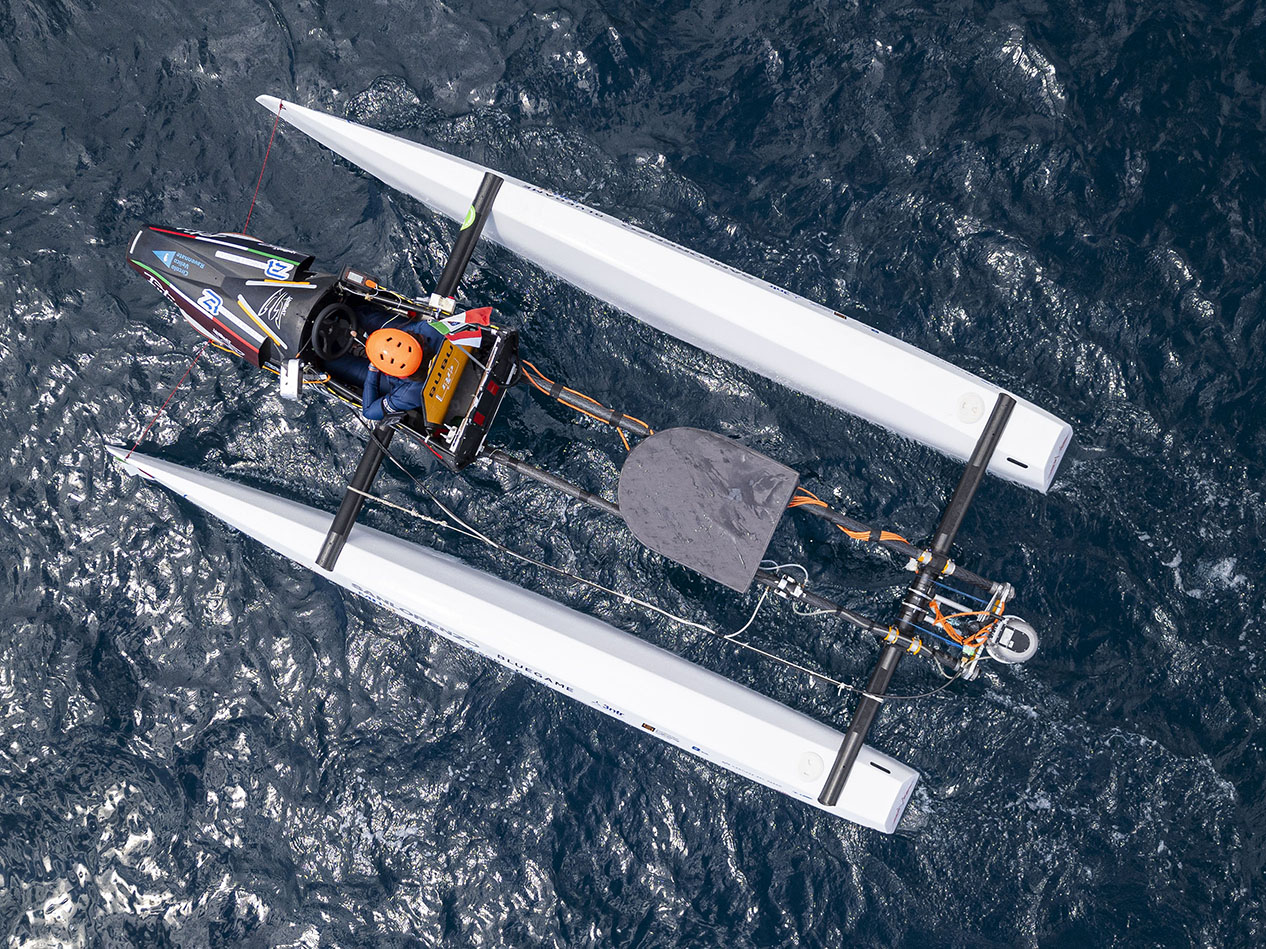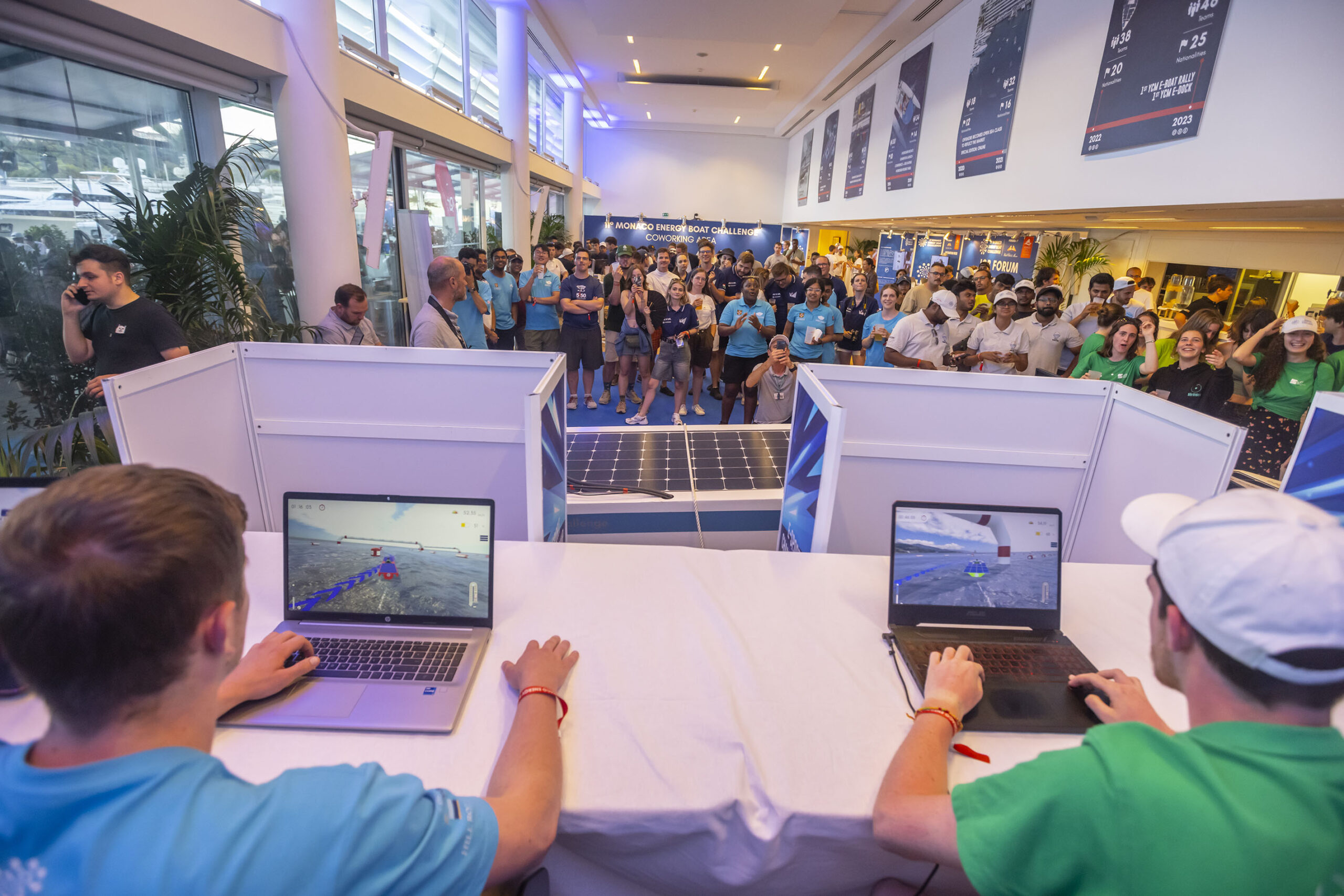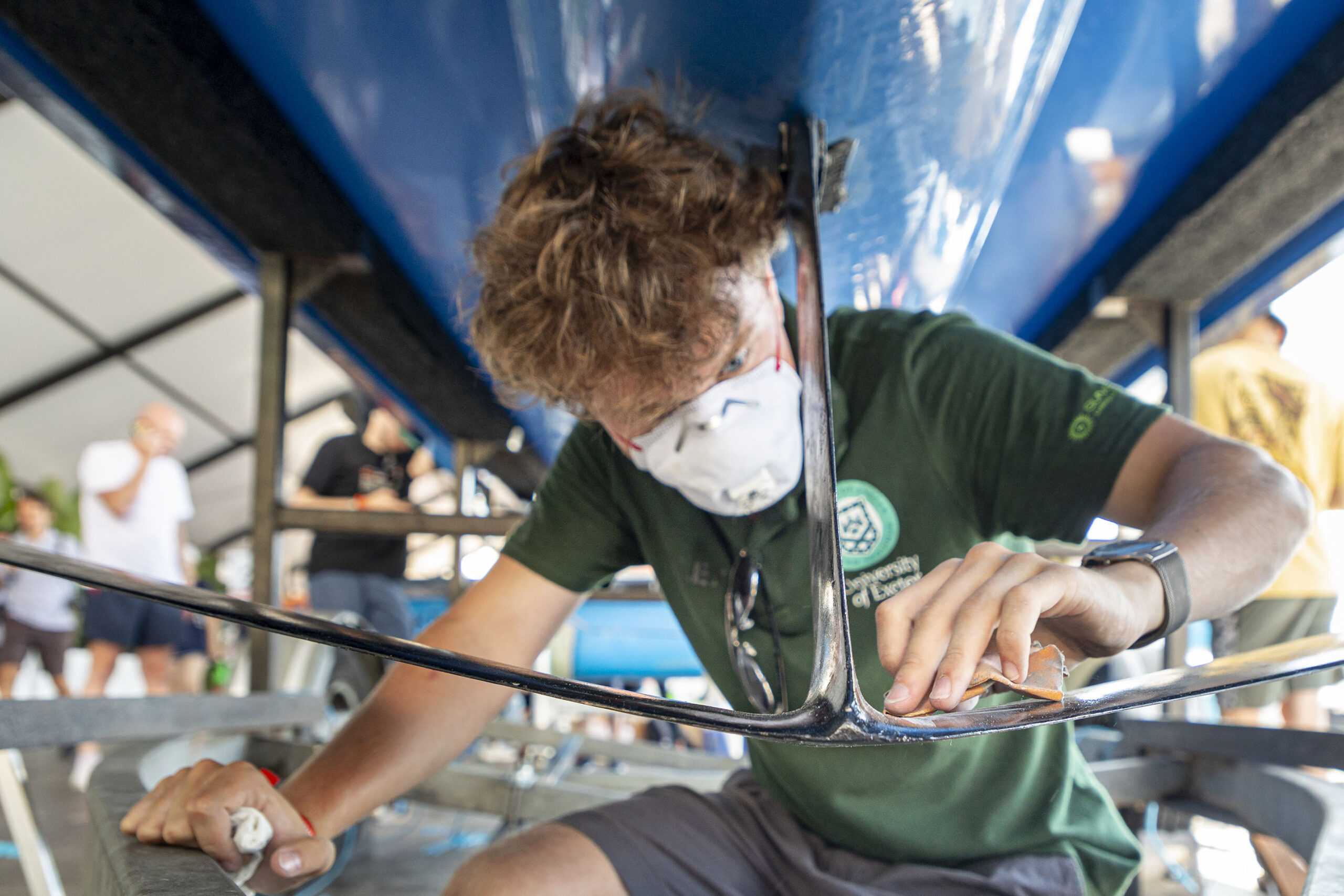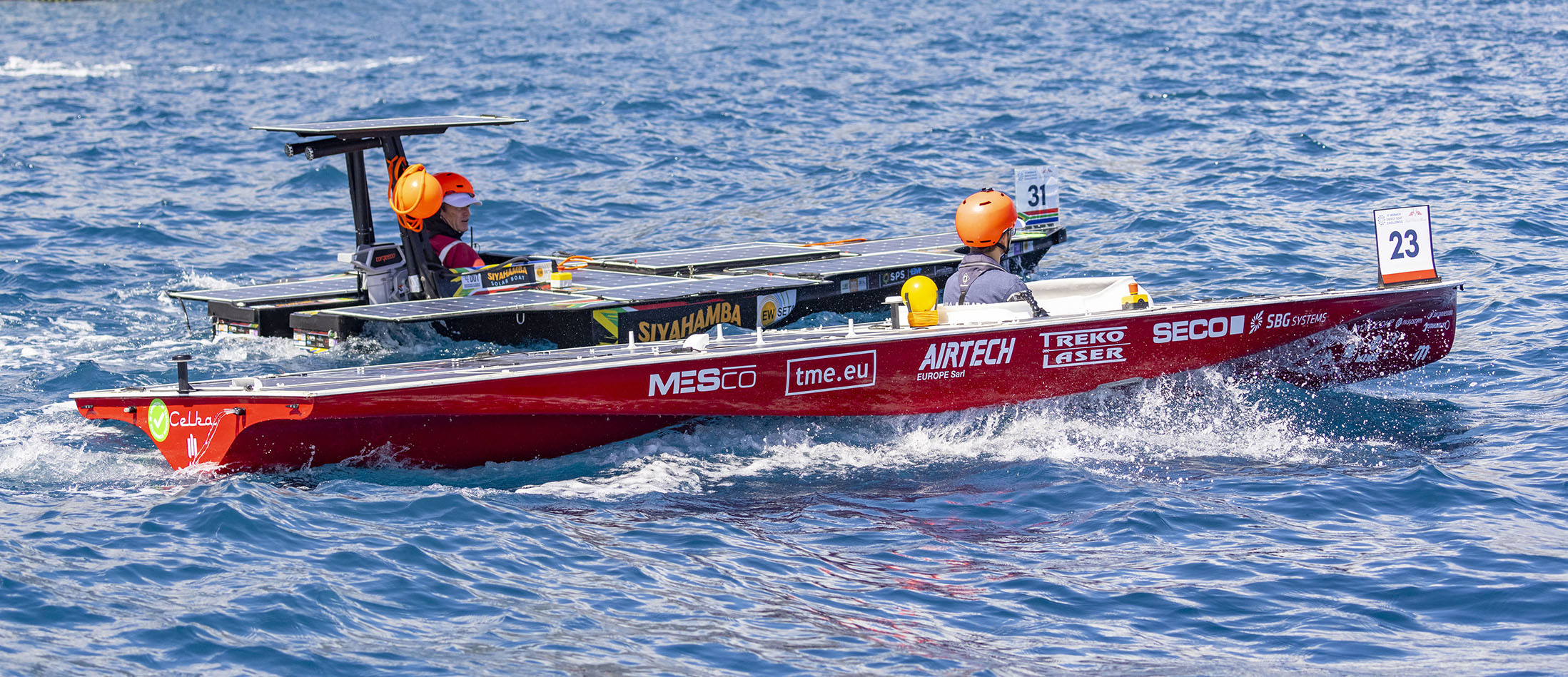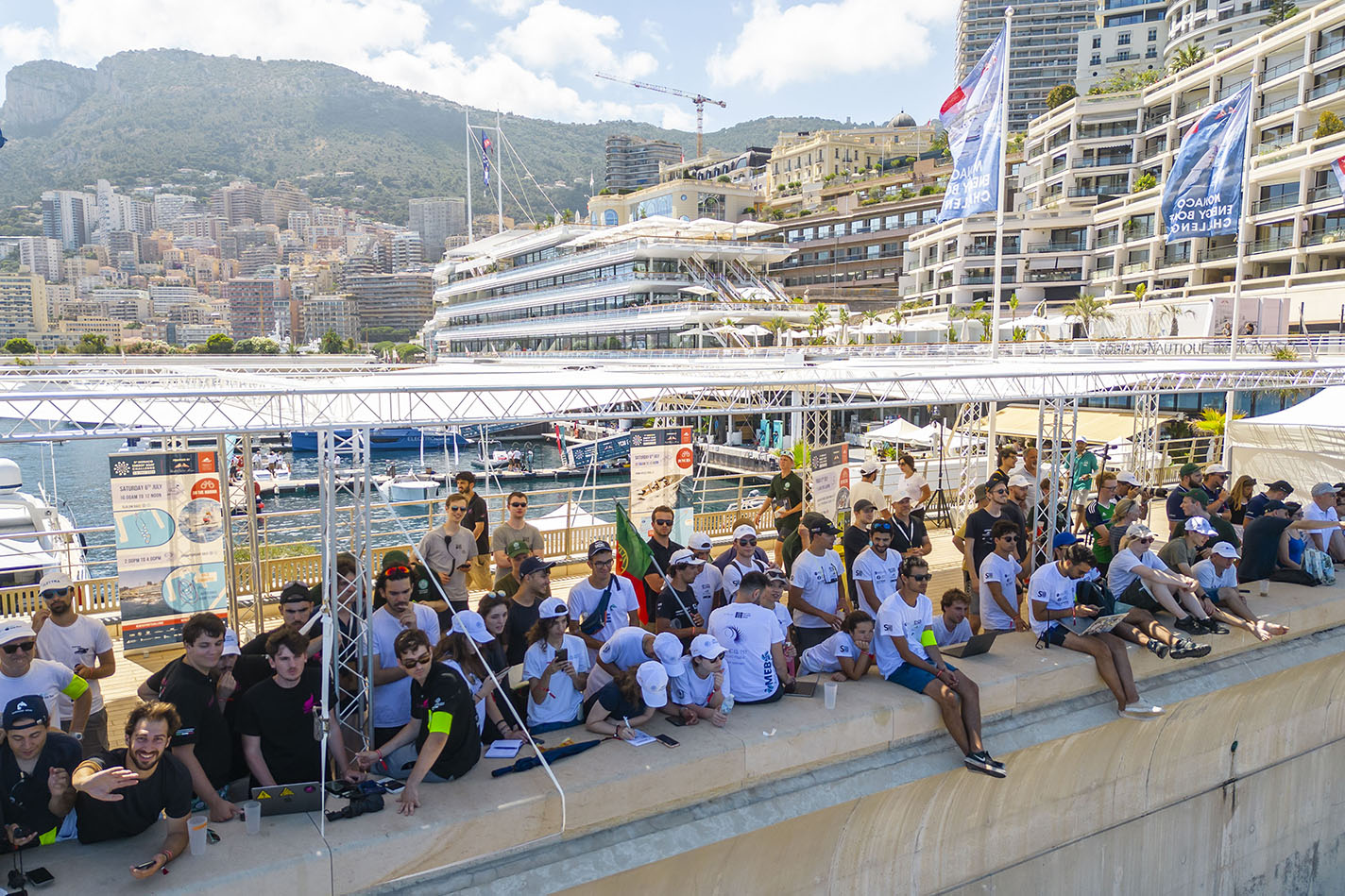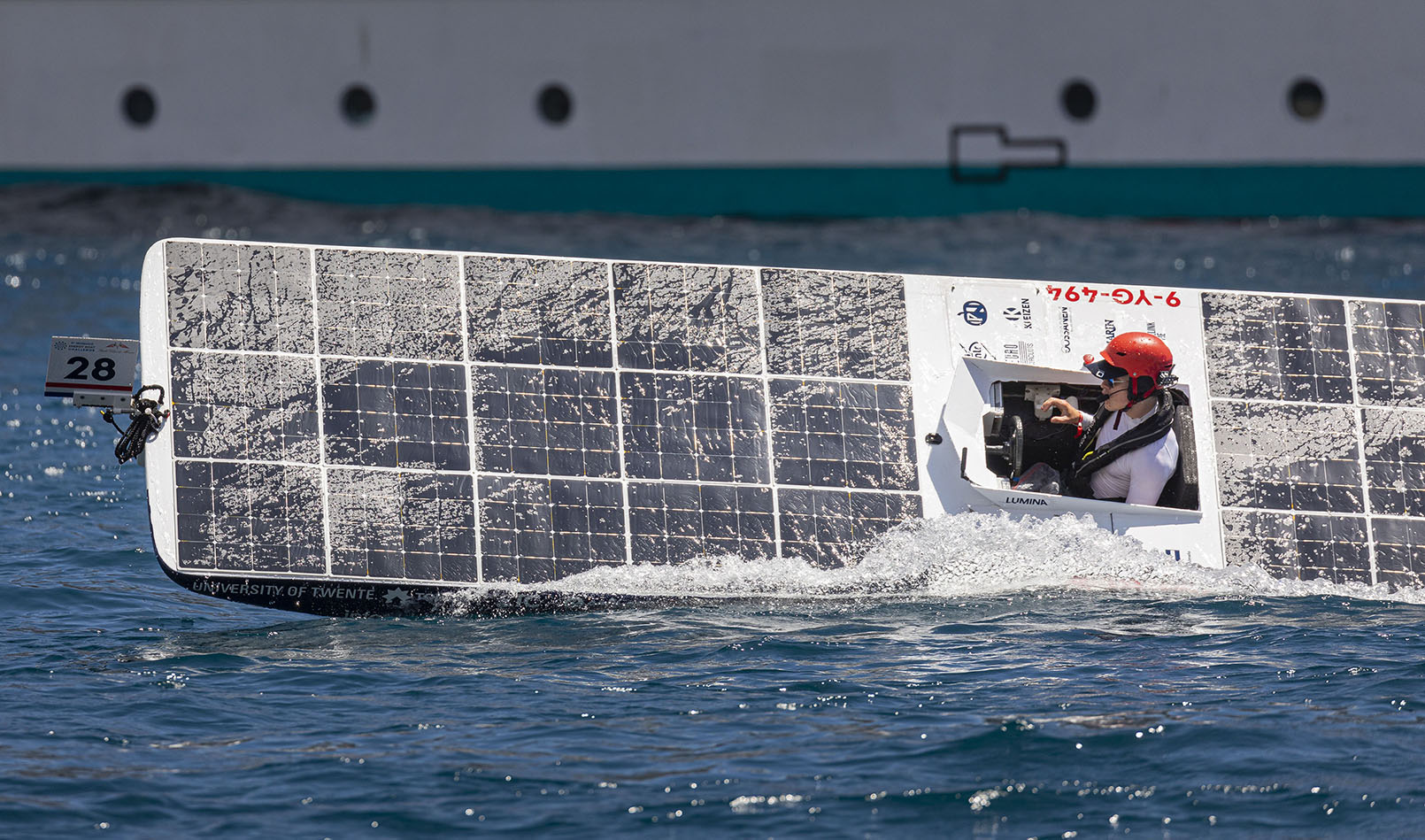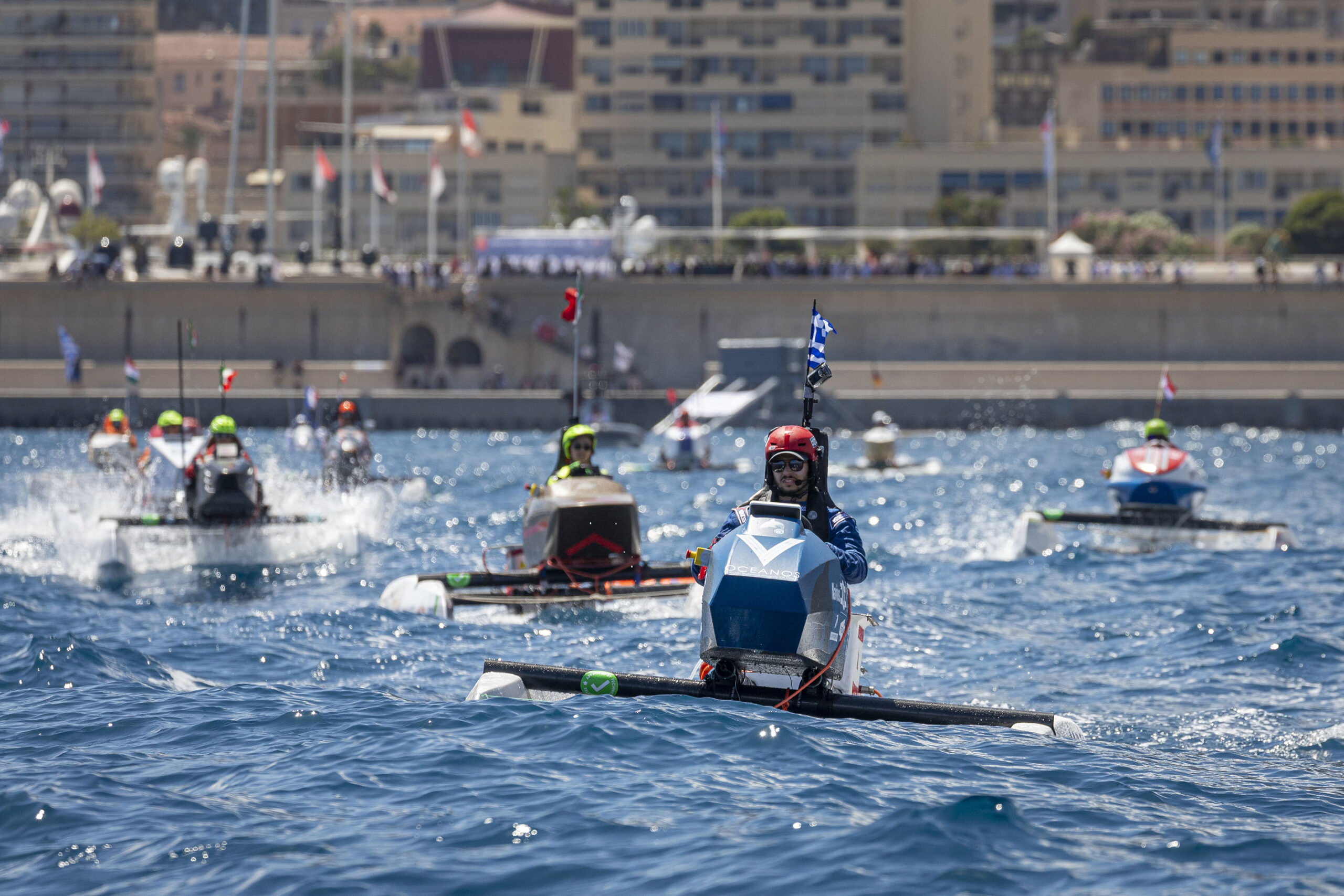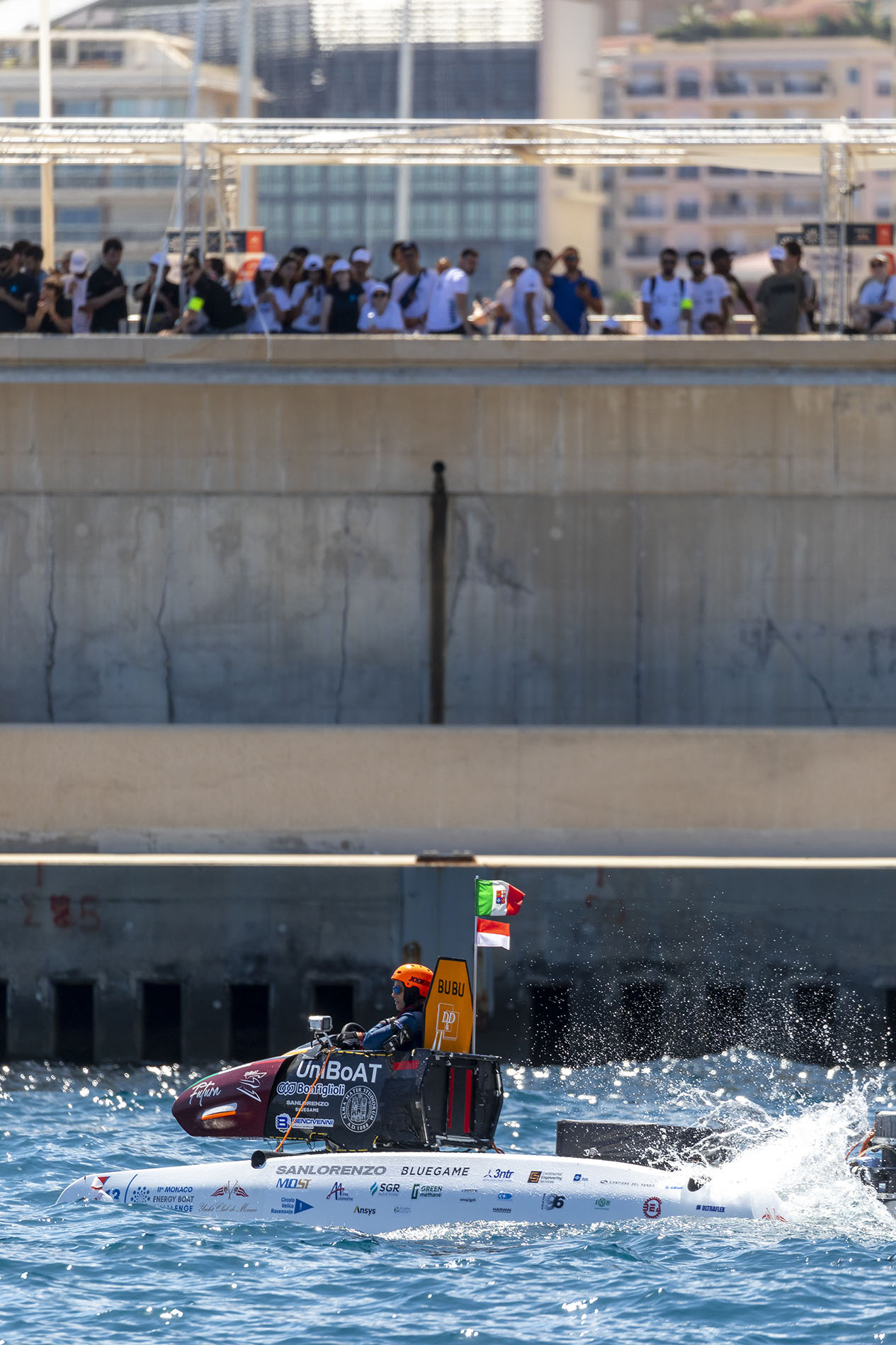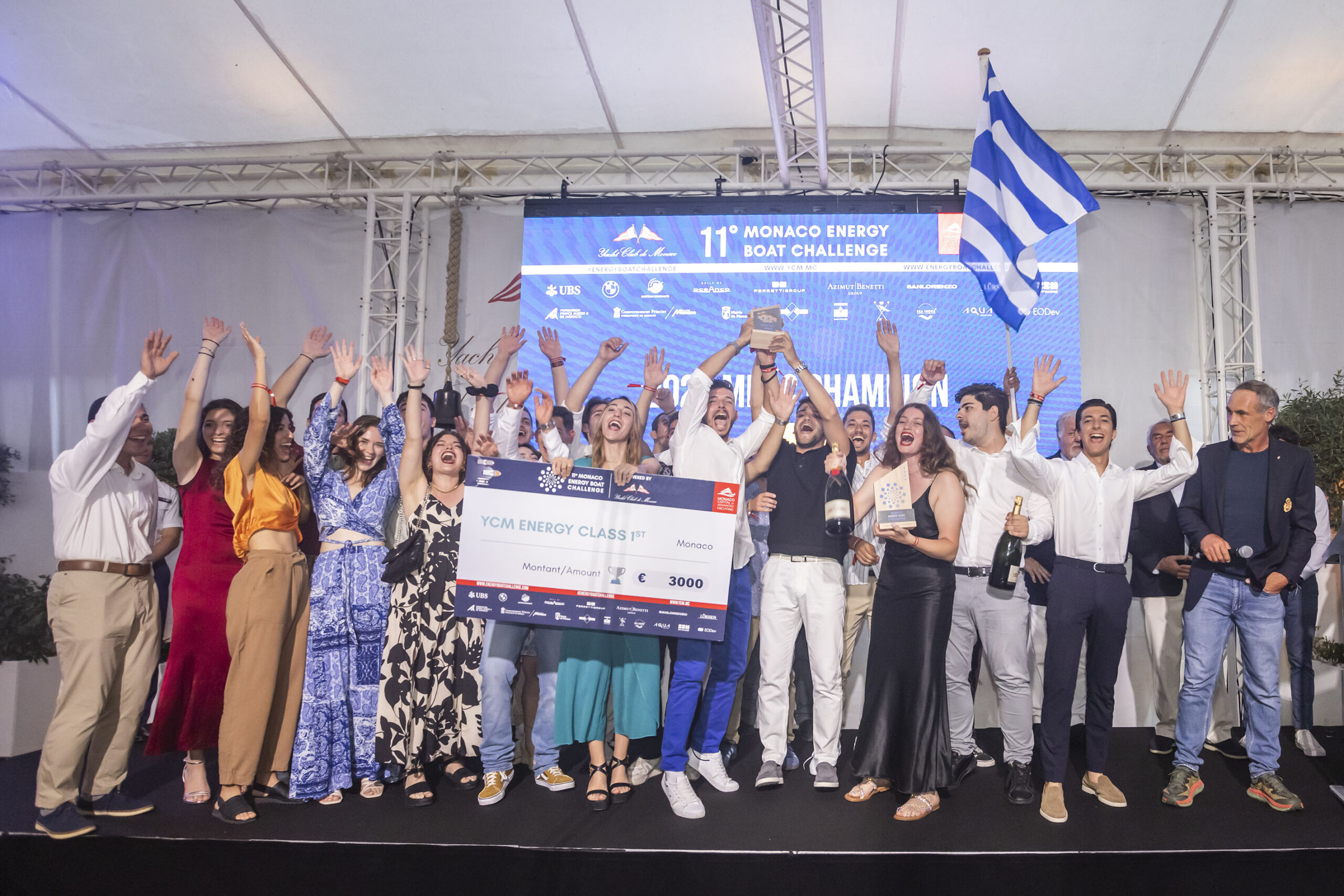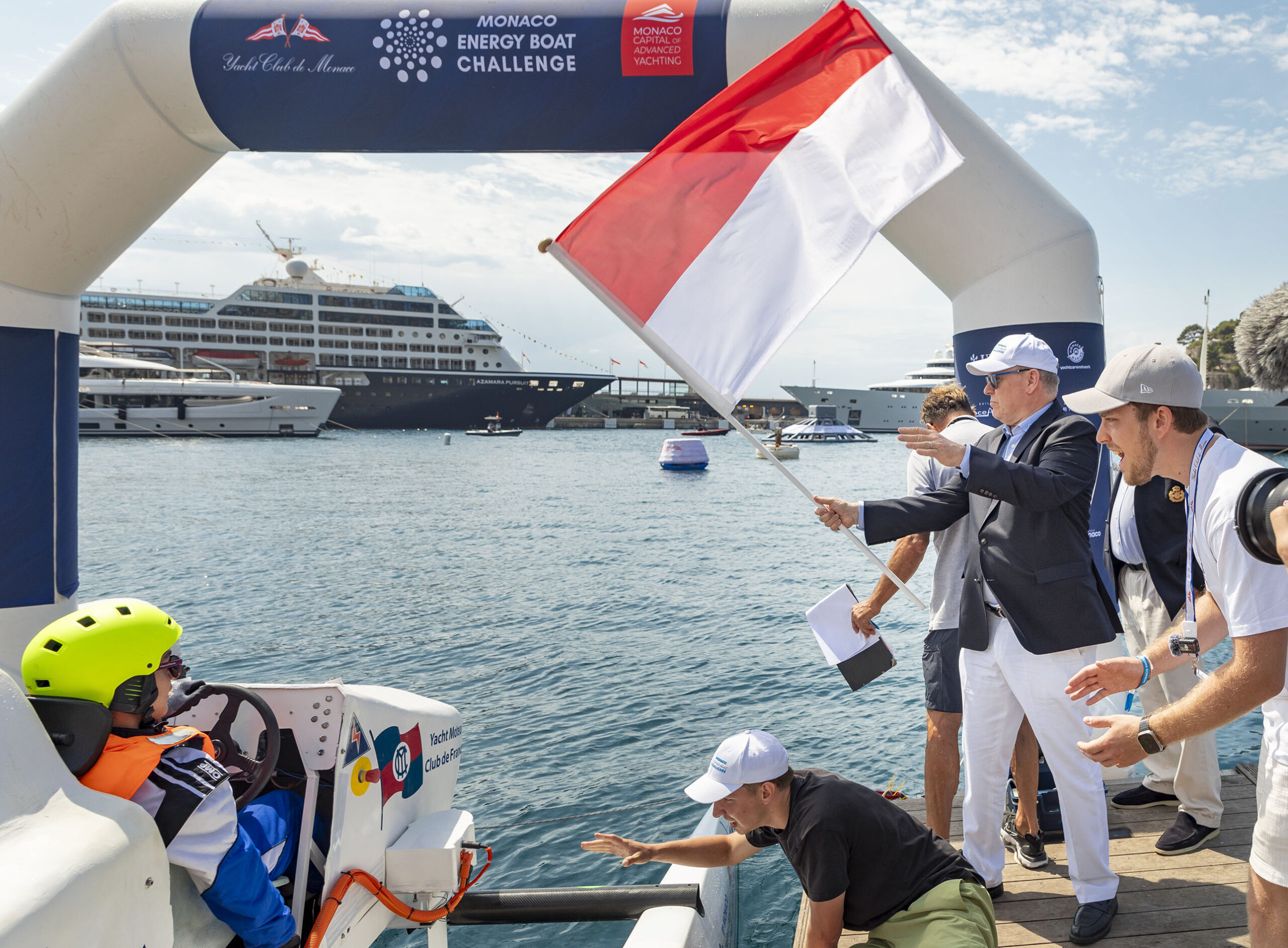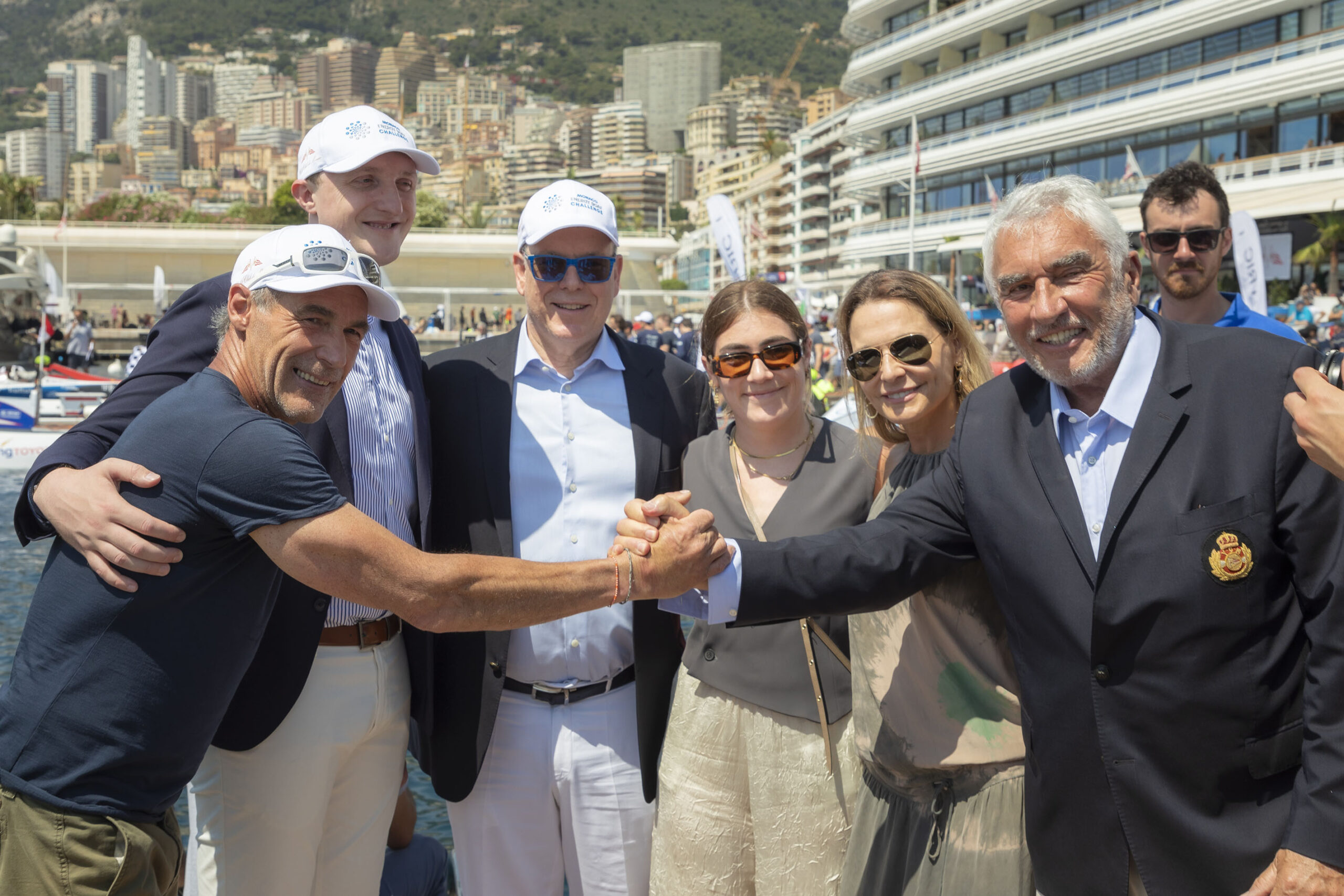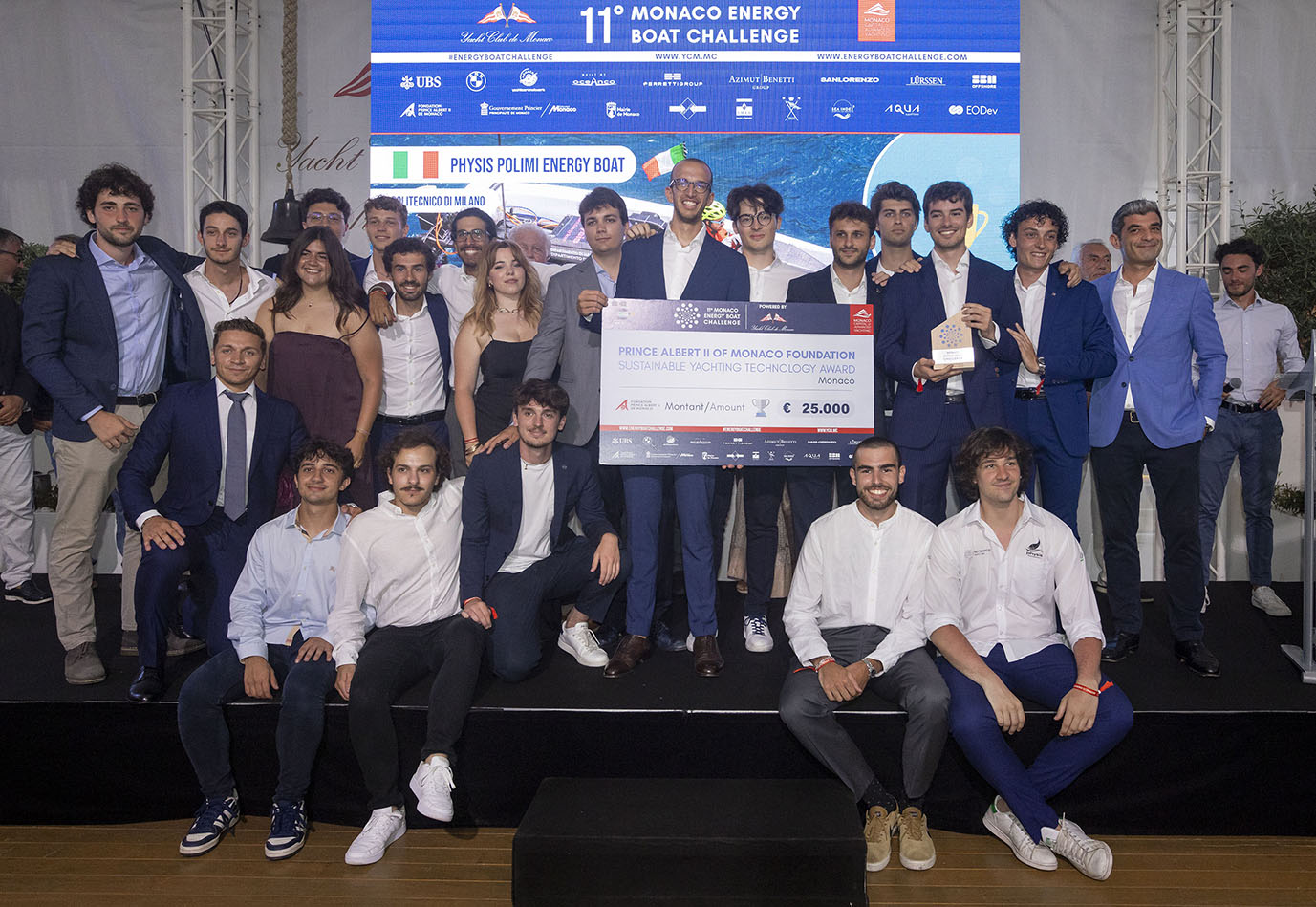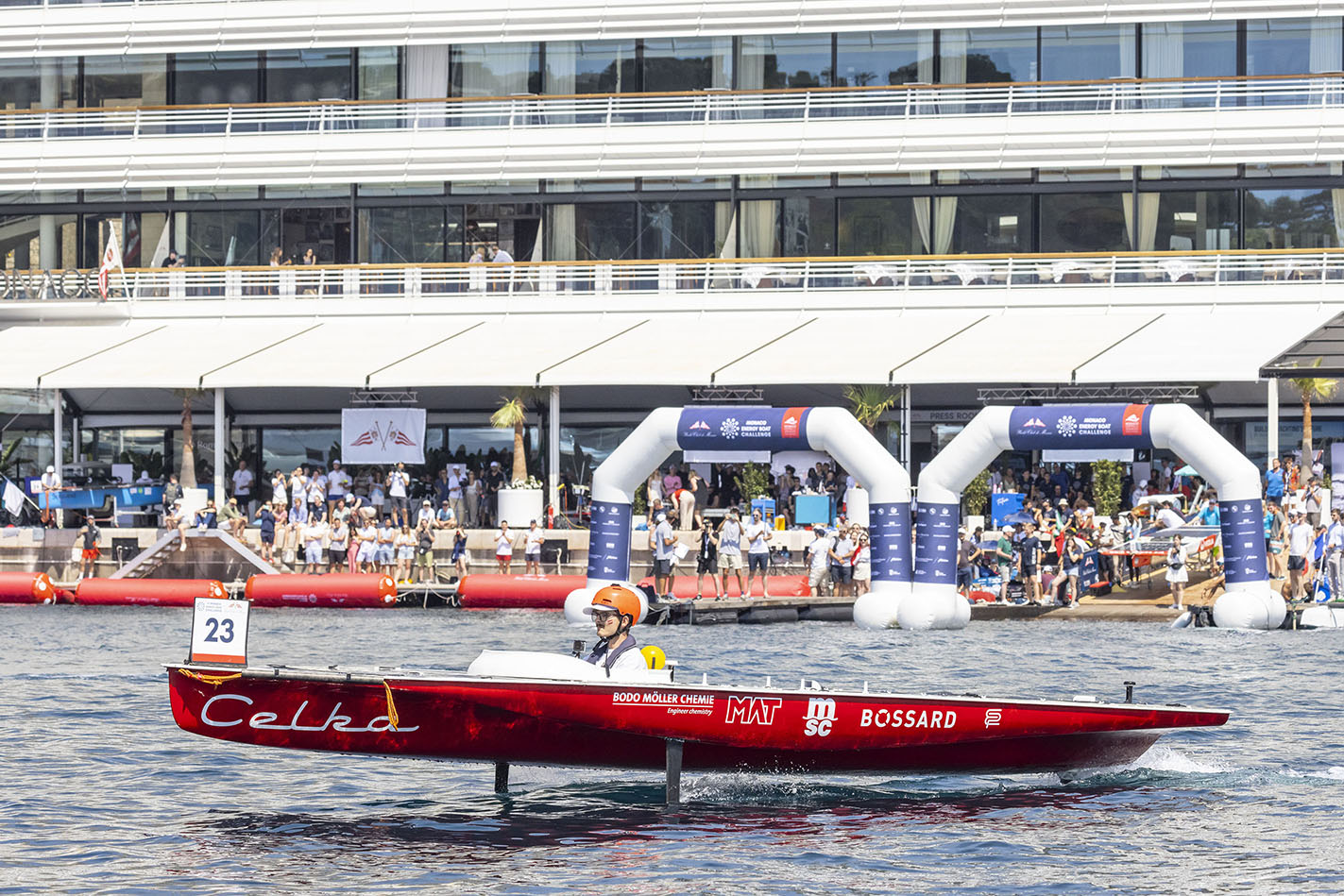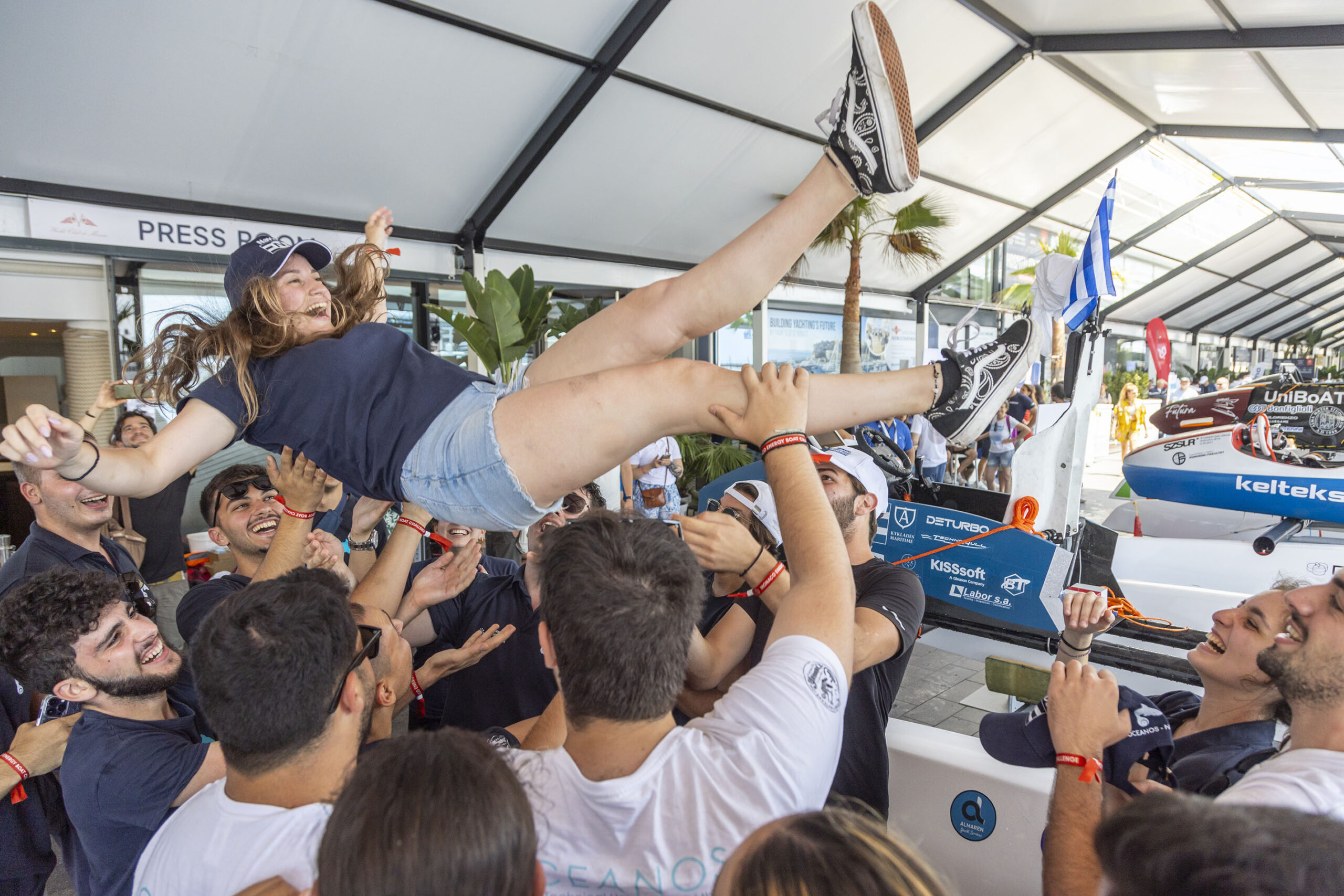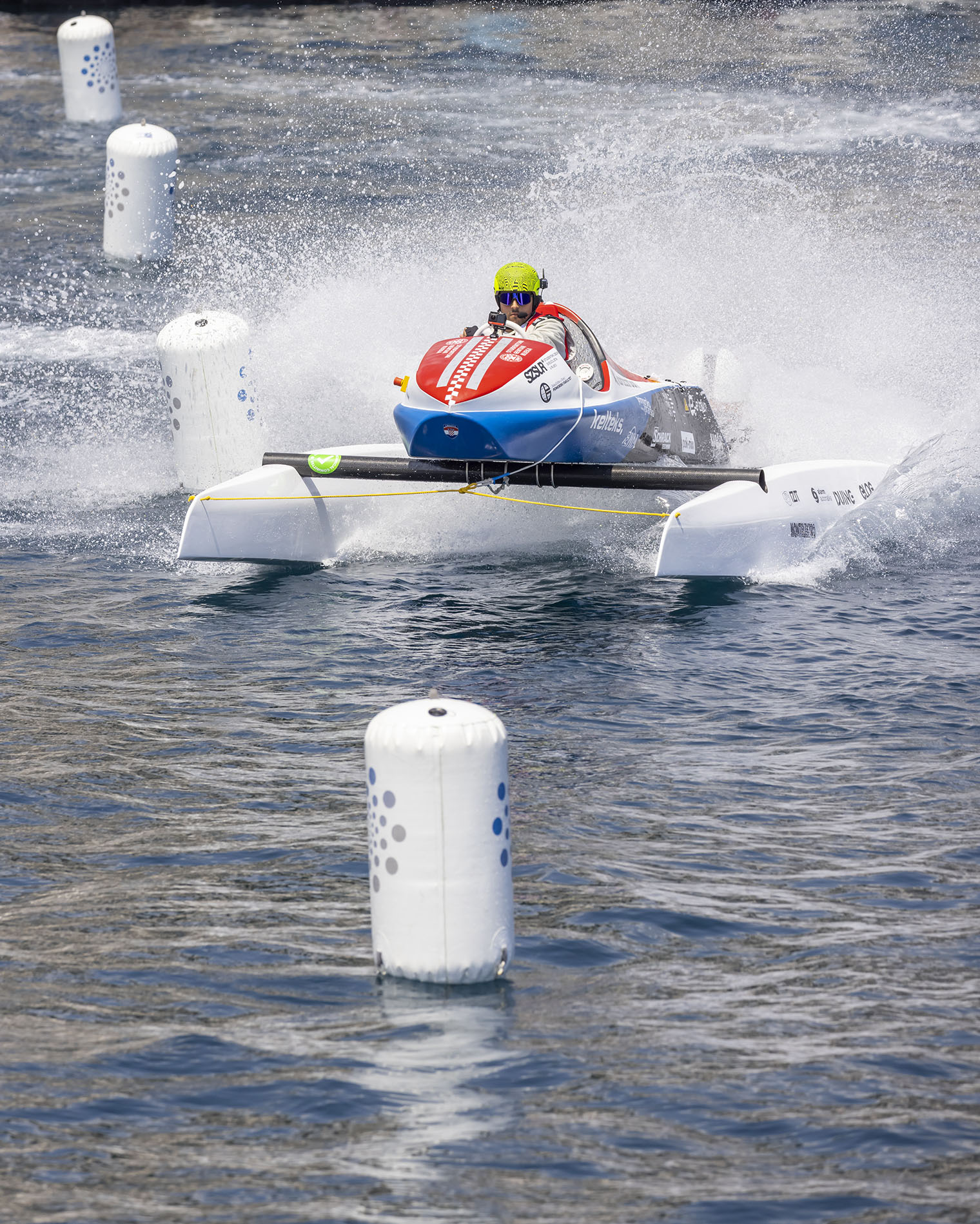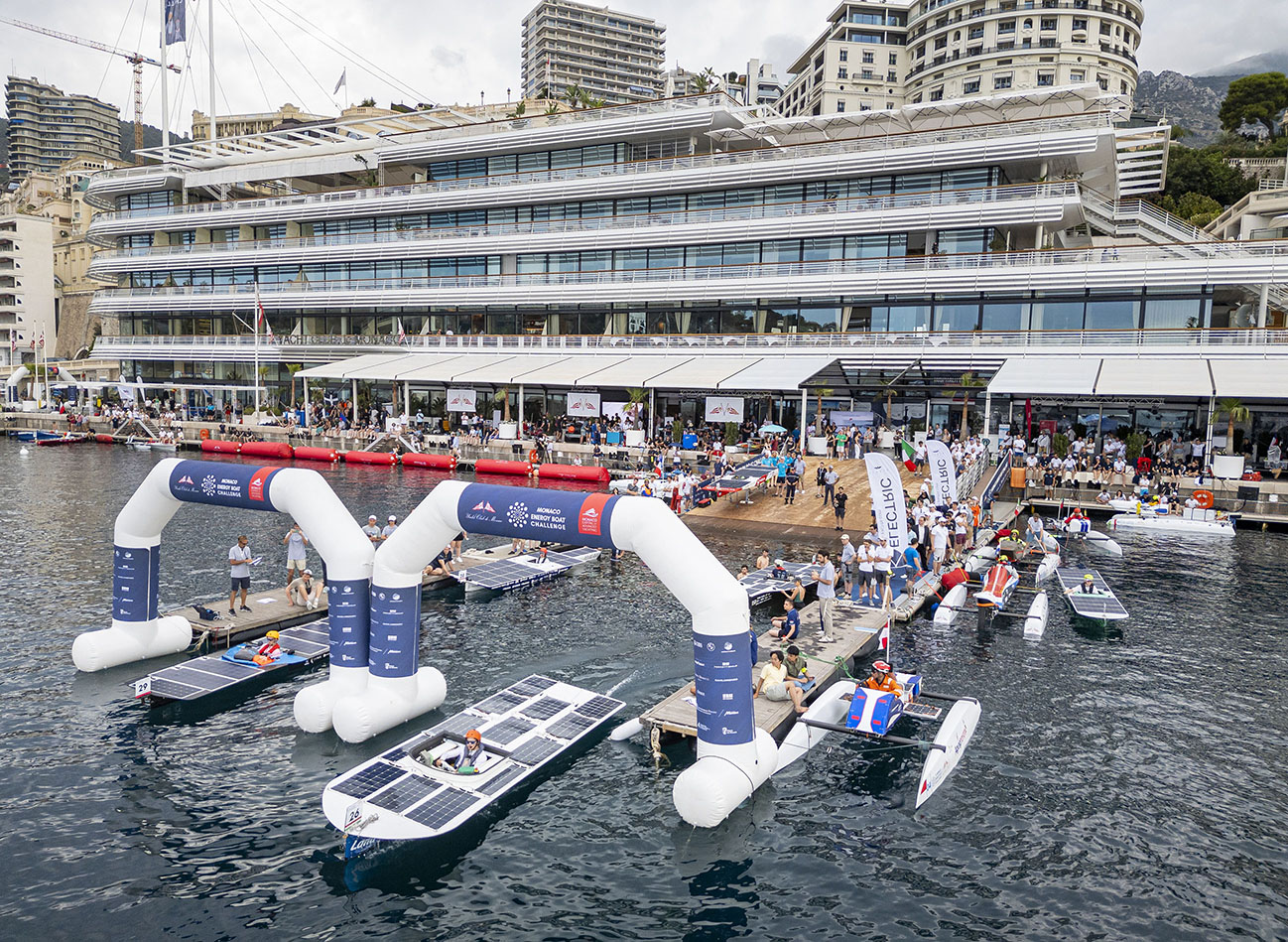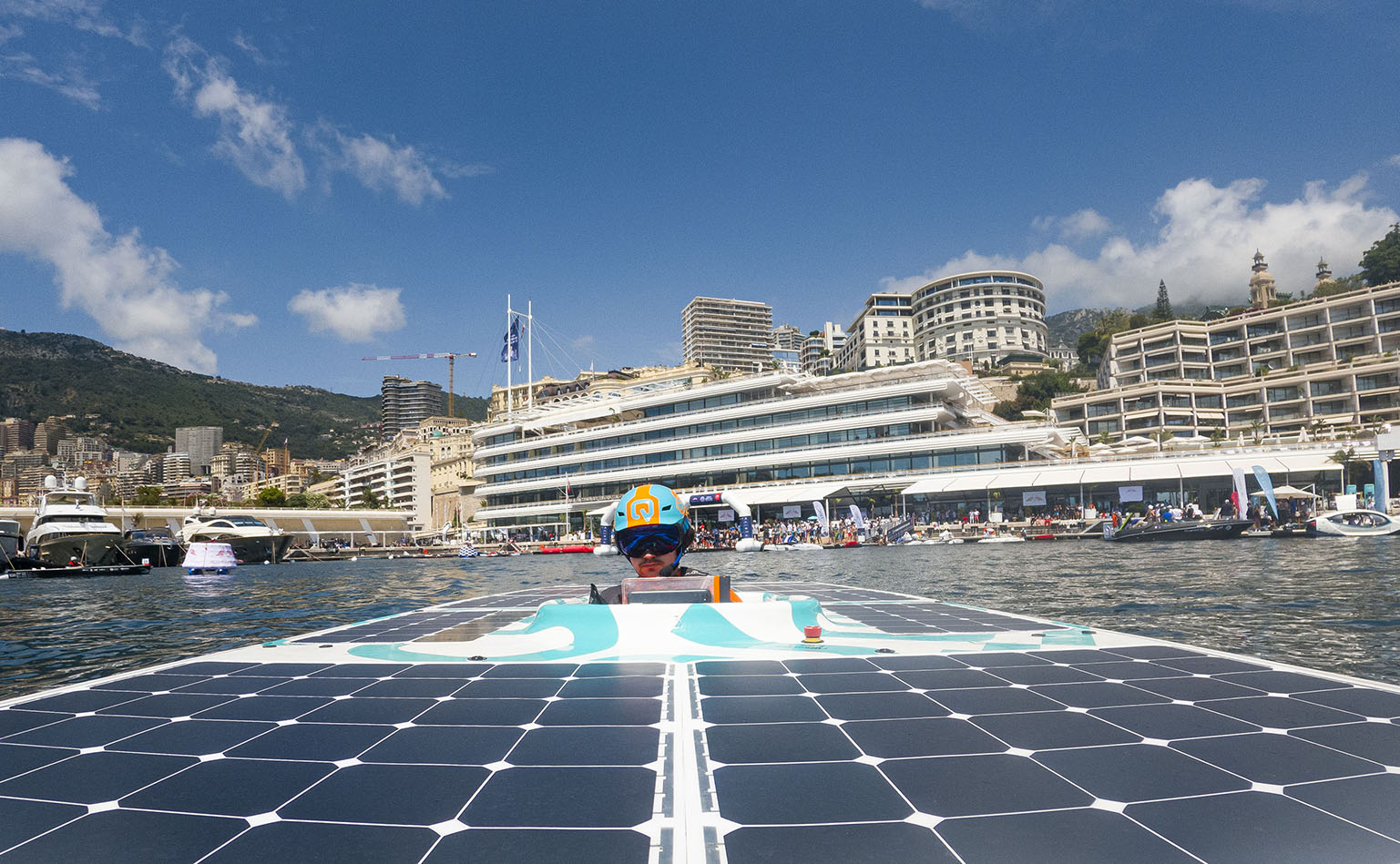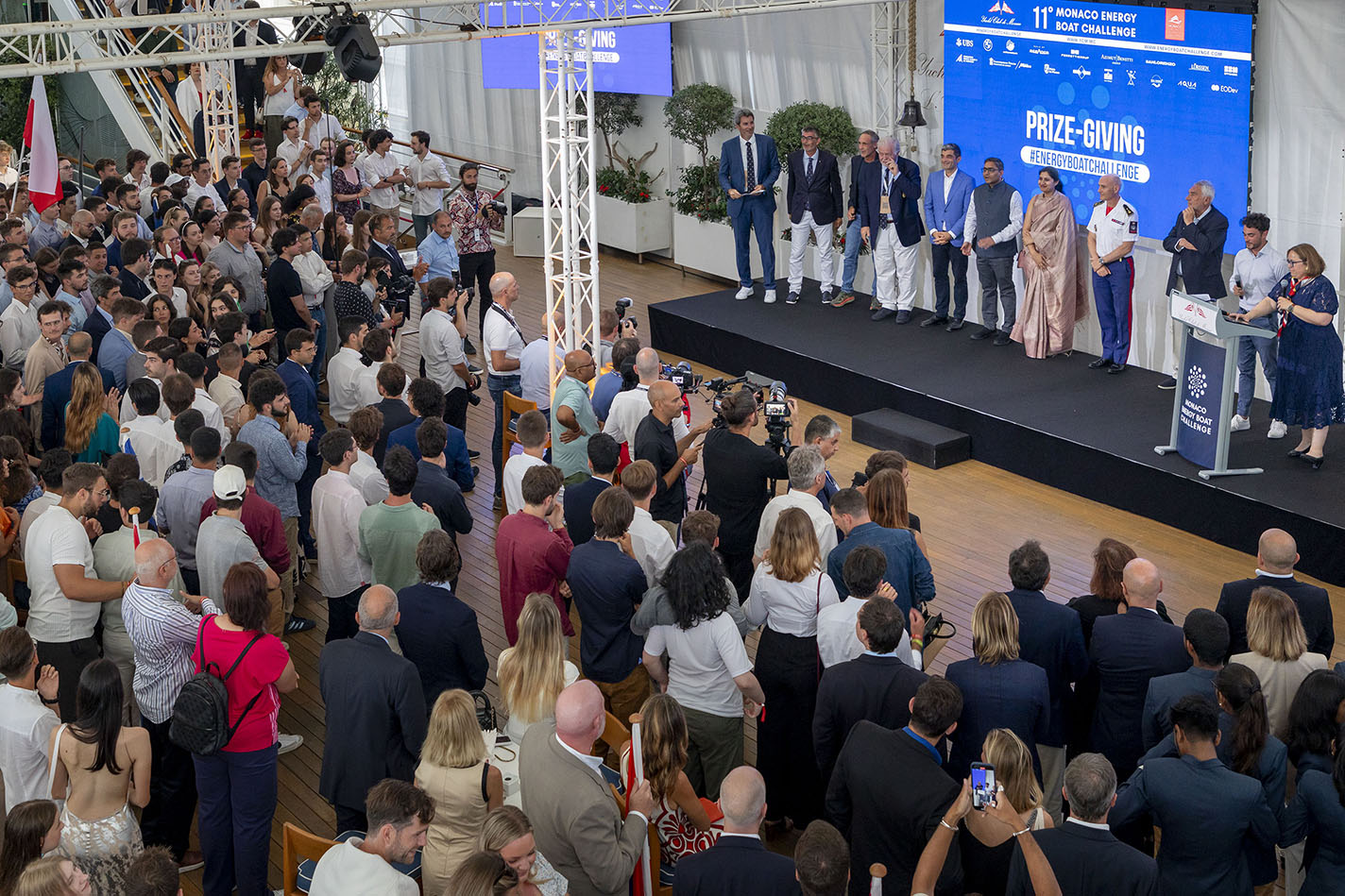YACHT CLASS n°38 (sept-oct-nov 2024)
Yacht Club de monaco
Launched ten years ago, the Monaco Energy Boat Challenge, a competition between revolutionary, eco-friendly racing boats, has become a real ecosystem, bringing together industry professionals and young students to make yachting more sustainable.
Written : Aurore Teodoro – Photos : Francesco Ferri, Stefano Gattini, Team Borlenghi et Mesi / YCM.
There was a promise of atmosphere. And it was certainly there, on this first Saturday in July, in front of the Yacht Club de Monaco (YCM), during the Championship Race. Under a blazing sun, Prince Albert II, President of the club, kicked off this speed race in the form of elimination duels on a course inside the marina, to the cheering of the speaker and the pilots’ colleagues. The culmination of a week of camaraderie, but most of all of competition and self-improvement, under the banner of environmental protection and technical progress. The Monaco Energy Boat Challenge (MEBC) began as a competition for solar-powered boats. But it has grown over the past decade into a must-attend event for young engineers and the yachting industry. This is evidenced by its partners, including Lürssen, Ferretti Group, Oceanco and Monaco Marine, to name just a few. “One of the unique aspects of this event is the interaction between students and yachting professionals,” confirmed Bernard d’Alessandri, YCM Secretary General. “It offers a unique mentoring opportunities , knowledge sharing and networking, which are vital to stimulate innovation and research.”
A synergy of all players
In addition to the sporting and technical aspects, the MEBC has become a real platform for young engineers, to present their latest developments, and for the yachting sector to meet. “We tried to create a lot of synergies,” confirmed Charlotte Mille, YCM Sustainability Division Manager and the event’s project manager. This 11th edition was a record year, with 40 universities and 25 countries attending. Of the 700 students mobilised throughout the year, 450 travelled to Monaco for six days of sports competitions (speed races, endurance races, slaloms, e-sport championships, etc.) but also tech talks, job forums and the conference on hydrogen and, this year, the one on alternative energies. The mentoring program, set up in 2023, has also grown. “Last year we had five or seven mentors, this year there are eleven, and I know from the conferences that we’ll have three or four more next year,” said Charlotte Mille, pleased with the success of this programme, which aims to support young engineers in their project management. Mentors include Sanlorenzo, who accompanied the Italian teams from Uniboat, winners of the last three editions, and Elettra UniGe. “We are confident that by supporting younger generations, we will be able to address the challenges towards sustainability,” explained Massimo Perotti, Chairman and CEO of Sanlorenzo. A few metres away on the quay, the Tameo ENSTA team is also very pleased with the support of their mentor and main sponsor, Monaco Marine. “We applied for the programme. We showed that we could build a good boat and they chose us, along with the Arts et Métiers team. In addition to the financial aspect, it was a great help to us on a technical level, in terms of design and production, and in terms of contacts if we were in need of a part or advice. There were people dedicated to helping us, particularly Angèle Navarro, our project sponsor. We called her regularly to show her the progress of the boat. The whole team at Monaco Marine supported us. Lastly, and most importantly, we also had the opportunity to test the boat for three days at their premices in Toulon”, underlined Thomas Wawrzyniak and Enzo Sawaya, two members of Team Tameo ENSTA / Monaco Marine.
The competition also reached a milestone
Like every year, this 11th edition introduced some new features, including a new sports prize. “We have the Energy and the Solar classes but, up to now, we didn’t know who the big winner was because they were separate. We decided to create a MEBC champion title, rewarding the team that was as good on land during the technical discussions as at sea”, Charlotte Mille emphasised, before specifying: “In addition, rather than meeting only during the MEBC, the judging panel met beforehand, allowing for an initial assessment. This led to a selection of the six best presentations that participated in the tech talks during this week”. This year, the first MEBC Champion title was won by the Greek team Oceanos NTUA, who also won the Energy Class. Another major innovation is the creation of the Prince Albert II Foundation Prize, rewarding the best technological solution for energy efficiency and carbon reduction. “The Foundation, already an event partner and jury member, wanted to strengthen its presence by pushing yachting towards more sustainable thinking with a €25,000 prize. This is a great opportunity for the university developing this project. The winners will then have to be in touch with us for the next three years so that we can monitor the progress of the project”, Charlotte Mille explained. This should keep the teams motivated in their search for ever more efficient and cleaner propulsion systems. It is worth noting that the last decade has seen considerable technological advances. This year, a new record was set in the Open Sea class. Evoy’s Goldfish X9 achieved a top speed of 56 knots and an average speed of 48.60 knots, well above last year’s record of 34.71 knots. And far beyond the first record of 23,996 knots set in 2015. The future remains in their grasp.
